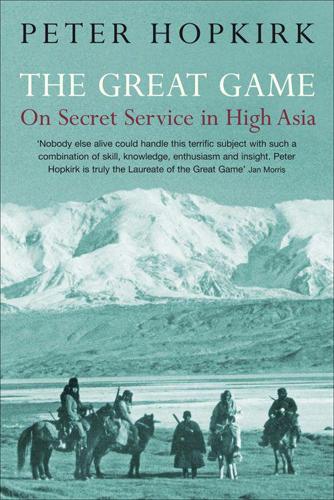
The Great Game: On Secret Service in High Asia
by
Peter Hopkirk
Published 2 Jan 1991
The defenders would be fresh, well fed and regularly supplied, while the invaders would be exhausted from months of marching and hardships, short of food and ammunition, and greatly reduced in numbers. If the invader got that far, then there were two obvious points, Kinneir noted, at which he might try to cross the Indus. Were he to approach India via Kabul and the Khyber Pass, as a number of earlier invaders had, then he would most likely choose Attock. Here, he reported, the Indus was ‘of great breadth, black, rapid and interspersed with many islands, all of which may be easily defended.’ However, there were a number of fordable spots in the vicinity. Were the invader to take the more southerly route through Afghanistan, via Kandahar and that other great gateway to India, the Bolan Pass, then he would probably attempt to cross the Indus near Multan, 300 miles down river from Attock.
…
If they used the former, he warned, they could avoid having to march the length of Persia by making use of the Caspian, which they now controlled, to transport troops eastwards to its far shore. From there they could march to the Oxus, up which they could be ferried as far as Balkh, in northern Afghanistan. After crossing Afghanistan, they could approach India via the Khyber Pass. This, it will be recalled, was the route which Peter the Great had hoped to use to make contact with India’s Mogul rulers – a dream which had ended with the massacre of the Khivan expedition. Kinneir was clearly unaware of the appalling difficulties of this route, for it was not until 1873, long after his death, that a detailed account of the expedition, and the hardships which it had to overcome, was translated from the Russian.
…
Moorcroft and his companions now tried to make up for lost time, leaving Leh before the letter summoning them home could reach them. In the late spring of 1824, after travelling through Kashmir and the Punjab (taking care to steer well north of Ranjit Singh’s capital, Lahore), they crossed the Indus and entered the Khyber Pass. Beyond it lay Afghanistan, and beyond that Bokhara. ·8· Death on the Oxus To take an ill-armed caravan laden with precious goods, and rumoured to be carrying gold, through the heart of Afghanistan was at the best of times a perilous undertaking. To attempt this when the country was in the grip of anarchy, and teetering on the brink of civil war, called for courage, or perhaps foolhardiness, of the highest order.
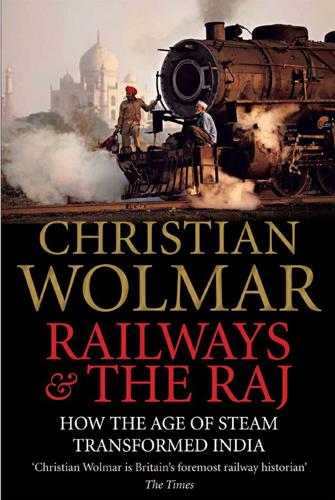
Railways & the Raj: How the Age of Steam Transformed India
by
Christian Wolmar
Published 3 Oct 2018
There were in fact 300 passes through the mountains of the North-West Frontier, and some particularly combative generals had wanted railways constructed up all of them. The most obvious gap in the potential defences against a hostile Afghanistan was the Khyber Pass, which was the most direct trade route between India and central Asia via Kabul, and was in fact part of the old Silk Road. As we saw in Chapter 5, several railways ran up to the Indo-Afghani border and the hope among the more optimistic hawks was that, this time, a railway could be built right into Afghanistan. A survey of the Khyber Pass in 1890 had concluded that it was impassable, but in 1901 the North Western Railway, which was a state-owned company created in 1886 by merging the various railways that were mostly in what is now Pakistan, built a line to Jamrud, the entrance to the Pass.
…
All Rights Reserved/ Bridgeman Images) Lahore station (© Corbis/ Getty Images) Victoria Station (SSPL /Getty Images) Bengal–Nagpur Railway worksite, 1890 (DeGolyer Library, Central University Libraries, Southern Methodist University) Darjeeling Himalayan Railway (© Hulton-Deutsch Collection/Corbis / Getty Images) Khyber Pass Railway (Peter Jordan /Alamy Stock Photo) Rawalpindi station, 1910 (Mary Evans /Grenville Collins Postcard Collection) Cotton bales being loaded at Akola station in Maharastra, c. 1930 (SSPL /Getty Images) Victoria Station booking hall, c. 1930 (SSPL /Getty Images) Gandhi (Dinodia Photos /Getty Images) Nationalist protesters blockading the railway, 1945 (Universal History Archive /UIG via Getty Images) Indian refugees during the Partition of India and Pakistan, 1947 (Bettman /Getty Images) SECTION TWO Indian State Railways posters (Swim Ink 2, LLC /Corbis /Getty Images) Indian Railways logo (india view /Alamy Stock Photo) Indian railway scenes from the 1980s by Chris Gammell (Courtesy of Bernard Gambrill and Roy Dension) Locomotive on the Konkan railway (Dinodia Photos /Alamy Stock Photo) Nilgiri Mountain Railway (IndiaPictures /UIG via Getty Images) Mumbai commuter line (Pal Pillai /AFP /Getty Images) Accident at Kasara near Mumbai, September 2012 (Mahendra Parikha / Hindustan Times via Getty Images) Cement bags being transported (Prashanth Vishwanathan /Bloomberg via Getty Images) Hawkers at Agra station (Robert Nickelsberg /Photonica World /Getty Images) Crowded train in New Delhi (Manan Vatsyayana /AFP /Getty Images) Protesters at Borivli station (Prasad Gori /Hindustan Times via Getty Images) Commuters at Chennai station (Alexander Mazurkevich /Shutterstock.com) Rush hour outside Sealdah station in Kolkata (Steve Raymer /National Geographic Creative /Bridgeman Images) Pictures of the author’s trip round India, February 2016 (Courtesy of Deborah Mabey) MAPS Indian Railway Network, 1871 Indian Railway Network, pre-1947 Indian Railway Network, 2017 Great Indian Peninsula Railway, 1909 North Western State Railway, 1942 (NB: Place names on maps refer to the contemporary versions.)
…
The usual provision was for a train per week in each direction, principally with the sole purpose of providing supplies to the railways themselves. Amazingly, there would be another burst of construction in these lines during the boom time of the Indian railways in the 1920s, including the conquest of the Khyber Pass (see Chapter 8). Meanwhile, more useful railways were still being built. One successful line was the Bengal & North Western, created in 1881, which was the only significant railway that never received any government aid throughout its existence. When it was taken over by the state during the Second World War, it boasted 1,270 miles of metre-gauge track serving the area north of the River Ganges to the south of Nepal.
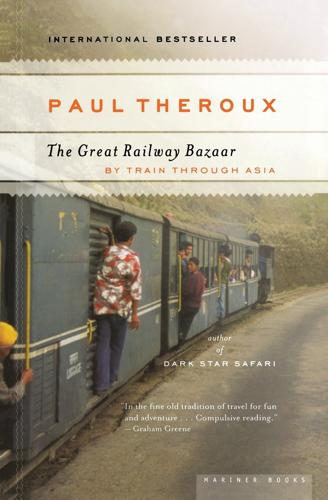
The Great Railway Bazaar
by
Paul Theroux
Published 1 Jan 1975
Two incidents in Kabul stay in my mind: a visit to the Kabul Insane Asylum, where I failed to gain the release of a Canadian who had been put there by mistake (he said he didn't mind staying there as long as he had a supply of chocolate bars; it was better than going back to Canada), and, later that week, passing a Pathan tent encampment and seeing a camel suddenly collapse under a great load of wood - a moment later the Pathans pounced, dismembering and skinning the poor beast. I had no wish to stay longer in Kabul. I took a bus east, to the top of the Khyber Pass. I had a train to catch there, at Landi Kotal, for Peshawar; and I dreaded missing it, because there is only one train a week, a Sunday local called the '132-Down'. Chapter Six THE KHYBER PASS LOCAL THE KHYBER PASS on the Afghanistan side of the frontier is rockier, higher, and more dramatic than on the Pakistan side, but at Tor Kham - the border - it turns green, and for this foliage one feels enormous gratitude.
…
Here, it was flat and green, the palms were high; it was probably hotter than Kabul had been, but so much green shade made it seem cool. Behind us the sun had dropped low, and the peaks of the Khyber Pass were mauve in a lilac haze so lovely it looked scented. Mr Haq said he had business here - 'I have to solve my great worry.' 'But let us meet later,' he said at Peshawar Cantonment Station. 'I will not trouble you with my problems. We will have tea and talk about matters of world interest.' Peshawar is a pretty town. I would gladly move there, settle down on a verandah, and grow old watching sunsets in the Khyber Pass. Peshawar's widely spaced mansions, all excellent examples of Anglo-Muslim Gothic, are spread along broad sleepy roads under cool trees: just the place to recover from the hideous experience of Kabul.
…
' - George Gissing, New Grub Street frseeeeeeeefronnnng train somewhere whistling the strength those engines have in them like big giants and the water rolling all over and out of them all sides like the end of Loves old sweet sonnnng the poor men that have to be out all the night from their wives and families in those roasting engines -James Joyce, Ulysses …the first condition of right thought is right sensation - the first condition of understanding a foreign country is to smell it... - T. S. Eliot, 'Rudyard Kipling' Contents 1. The 1530 - London to Paris 2. The Direct-Orient Express 3. The Van Golu ('Lake Van') Express 4. The Teheran Express 5. The Night Mail to Meshed 6. The Khyber Pass Local 7. The Khyber Mail to Lahore Junction 8. The Frontier Mail 9. The Kalka Mail for Simla 10. The Rajdhani ('Capital') Express to Bombay 11. The Delhi Mail from Jaipur 12. The Grand Trunk Express 13. The Local to Rameswaram 14. The Talaimannar Mail 15. The 16.25 from Galle 16. The Howrah Mail 17.

The Beach
by
Alex Garland
Published 1 Jan 1996
The idea was abandoned when Cassie discovered that monkeys used the pool for drinking, and now the path was only used by people who, like me, were uncomfortable with the plastic-pitcher option in the toilet. Judging from the faces I'd passed on the path, I'd say that accounted for at least three-quarters of the camp. It was used commonly enough to have acquired a nickname — the Khyber Pass — and the regular tramping of our feet kept the weeds under control. It took me half an hour to find my way to the pool, which turned out to be a slight disappointment. As I'd picked my way through the undergrowth I'd been imagining a cool glade where I could bathe whilst watching monkeys swinging in the trees.
…
Gauche, next to his relaxed but frank sexuality. The prick. I held his gaze, and the smile twisted into an inane sneer, the expression he should have started with. "Don't be silly, Richard," Sal said, detaching herself from Bugs' embrace. "Where have you come from?" "I went for a walk down the Khyber Pass and found a bunch of papaya trees, then ended up here." "Papayas? How many?" "Oh, loads." "You should tell Jean, Richard. He's always interested in that sort of thing." I shrugged. "Yeah, the problem is, I doubt I could find them again. It's hard to keep your bearings in there." Bugs revived the sneer.
…
"He put a squid in one of the fishing buckets, and we chopped it up and chucked it in with everything else." "So?" "The squid was already dead when he speared it." Jed sucked in his breath sharply. "Most of the camp are sick. The bathroom hut is clogged with vomit, and you don't want to go near the Khyber Pass." "What about you?" I asked. "You seem OK." "Five or six of us are all right. I've got a few pains, but it looks like I've been lucky." "And why did Keaty spear a dead squid?" Ella narrowed her eyes. "I'd like to ask him that myself. We'd all like to ask him that." "Yeah… Where is he? In his tent?"

Alexandria: The Quest for the Lost City
by
Edmund Richardson
Published 12 May 2021
7 He spoke in a deep, almost incomprehensible German accent, backed up by ‘vehement gesticulation’.8 Occasionally, his voice leaped up the octaves to ‘a most curious treble, the effect of which is so startling, one can scarcely refrain from laughter’.9 Wolff did not stay long in Kabul. He managed to make it through the Khyber Pass without losing any more clothes, and was soon bearing down on the town of Gujrat, which lay north of Lahore, within the empire of Ranjit Singh. Wolff reached the city well after nightfall, when the markets were deserted and the shops shut up. Not at all daunted, he found his way to the grandest building in town, the palace of Gujrat’s governor, and hammered on the door until a bleary-eyed watchman opened it.
…
Instead, Dost Mohammad put him in charge of helping his brother, Amir Mohammad Khan, lose weight. ‘This individual was remarkable for extreme obesity – his weight exceeded the strength of any horse to carry. He was obliged to move about in a palanquin borne by eight men and ride upon an elephant when travelling.’14 Instead of leading an army of Afghans through the Khyber Pass, Harlan found himself in charge of Kabul’s first slimming programme. While in Kabul, Harlan ‘once entertained the idea of assuming the disguise of a Greek physician, and as such to pass the countries intervening between Kabul and China. On the frontiers of the latter country he was to remain six months to acquire the Chinese language, which attained he was to repair to Peking, to gain the confidence of the Emperor, to obtain a considerable command in the army and to work a revolution in the country!’
…
No one was sure if the lawyer let him win – or if Dost Mohammad let the lawyer think he was letting him win.37 Lal confessed that ‘I might be able to delineate him in Persian’, but it was not possible ‘to do his character justice’38 in English. In 1835, Afghanistan was a small, poor country surrounded by large, hungry ones. In the east, Ranjit Singh had recently helped himself to the Afghan city of Peshawar, which commanded the ancient Silk Road route through the Khyber Pass. He had evicted one of Dost Mohammad’s brothers, Sultan Mohammad Khan, from the city and moved in his own forces. Beyond Ranjit Singh’s empire, the East India Company watched and waited. In the west, the Shah of Persia’s armies were within striking distance of the border city of Herat. To the north, Russian agents were fanning out across the steppes of Central Asia.

On the Road to Kandahar: Travels Through Conflict in the Islamic World
by
Jason Burke
Published 21 May 2025
Concerned by the international opprobrium that harbouring bin Laden had brought, the Taliban had decided it would be best if the Saudi ‘disappeared’. They had no idea where bin Laden had gone, they claimed, somewhat implausibly. Which is why Ekram and I went searching for him. The first place to look was Jalalabad, the eastern Afghan city that was only a day’s drive from Peshawar, through the Khyber Pass. * * * You cannot see the Khyber Pass from Peshawar. At the western end of the rich and fertile plain around the city there is a long, blank wall of hills, the colour of rusted iron plate. The pass itself lies beyond them, protected on both sides by ranks of interlocking cliffs, dry river gullies and the trenches, bunkers and castles left by centuries of warfare.
…
The stall owners were banging down their steel shutters, women in burkas were noisily hustling for end-of-day bargains and the kebab vendors, their heads swathed in scarves against the dust and the pollution, were busy. They squatted by their small braziers turning the stringy, fat-streaked meat that spat above the hot coals. When it was dark, I hoped to slip past the army checkpoints by joining the crowds of labourers and shop workers heading back from the city to their homes high in hills around the Khyber Pass for a meeting with al-Qaeda. It was 4 October 2001 and I had been in Pakistan for three weeks. I had returned to the country a few days after the attacks of September 11 and was still trying to reconcile the familiar environment with the drastically changed circumstances. Even the clothes I was wearing – the baggy shalwar kameez – felt odd.
…
Much depended on what strategies the West adopted in the newly declared ‘War on Terror’ and, of course, the reactions of the world’s Muslims. I was concerned that the war in Afghanistan would play into bin Laden’s hands, deepening and spreading the anti-Western sentiments already widespread in the Islamic world. The question I should have been asking the teacher in the qala in the Khyber Pass, I realized, was not ‘What does bin Laden want?’ but ‘Is bin Laden’s judgement of his audience right?’ Will those to whom he is reaching out see the 9/11 attacks as legitimate and heed his call to arms or will they turn on him with disgust, hate and fear? * * * After eight weeks waiting for the Northern Alliance, the rag-tag coalition of factions once led by Ahmed Shah Massood, to move against the Taliban I decided that the war would stop for the Afghan winter and went home.
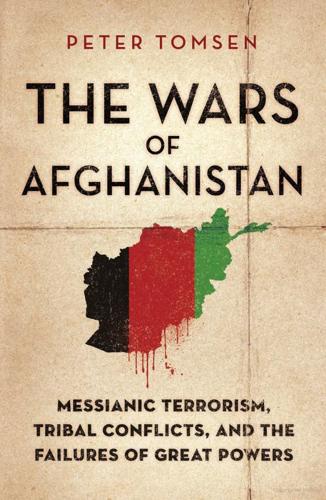
The Wars of Afghanistan
by
Peter Tomsen
Published 30 May 2011
The famous Khyber Rifles unit, raised from the Afridi tribe, was the first to go, its deserters joining hundreds of Pashtuns on both sides of the border attempting to capture the Khyber Pass. Further west, Waziri and Mahsud tribal militia in the Kurram and North and South Waziristan went over to the invading Afghans. The British struck back from the air, surprising the Afghans, who had never experienced an attack from that quarter. Three British bombers struck the invading tribal forces at the strategic Khyber gateway to Afghanistan. British infantry advanced from Peshawar intending to clear the Khyber Pass and move on to Jalalabad. Nadir Khan, meanwhile, crossed the border to the west with fourteen regiments and assorted Afghan tribal allies.
…
A trove of folktales and legends about “the Great One,” orally passed down throughout middle Eurasia, survives today. Alexander is known as “Iskandar.” Afghan parents still occasionally choose Iskandar as the name for their sons—and Roxane, Alexander’s wife’s name, for daughters. Along the Afghan-Pakistani frontier, some Pashtun tribes—such as the Afridi, residing near the famed Khyber Pass—claim Greek ancestry. The Nuristanis, in Konar, who provided three hundred cavalry to Alexander’s army,5 explain that their race’s light complexion and frequent blond hair and blue eyes originate from remnants of Alexander’s army who stayed behind. The Persian tribal migrations from Central Asia into present-day Afghanistan and Iran began after Alexander the Great’s conquests and a century before the Parthians blocked Crassus’s way east.
…
Afghan ruler Sher Ali fled to the Amu Darya. The Russians rejected his appeal for assistance. Isolated, abandoned by Afghans, and in deteriorating health, Sher Ali died in February 1879. In May, the British forced his son, Yaqub Khan, to sign the Treaty of Gandamak, surrendering to the British the Khyber Pass, the Pashtun tribal areas east of the Khyber (in present-day Pakistan), plus the region north of the Bolan Pass (also in present-day Pakistan) south of Kandahar province. The Afghans agreed to British control of Afghan foreign policy and a permanent British residency in Kabul; the British, in return, promised an annual stipend to Yaqub Khan and his successors.
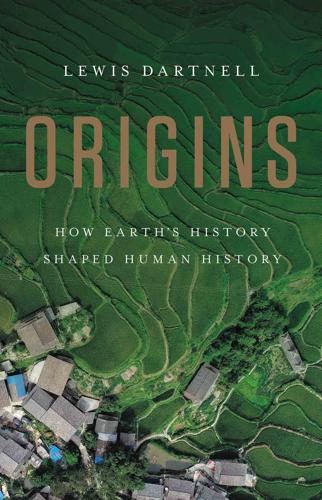
Origins: How Earth's History Shaped Human History
by
Lewis Dartnell
Published 13 May 2019
After negotiating the Taklamakan desert and Tian Shan mountains, the Silk Road passed along valleys and then wove across the deserts of Central Asia–through modern-day Uzbekistan, Turkmenistan and Afghanistan–connecting oases and trading stops like Samarkand, Bukhara, Merv and Herat. A southerly branch of the caravan network bore south to Kabul, and from there threaded through the Khyber Pass over the Hindu Kush mountains of the Western Himalayas and down into the Indus valley.18 Continuing west, the Silk Road passed south of the Caspian Sea through Persia, linking large entrepôts like Baghdad and Isfahan, and then carried on to Damascus and the ports of the eastern Mediterranean; or it turned north to the Black Sea, from where the goods were carried to Europe by ship.
…
DISPLACED PEOPLES In the same way that the Silk Road passed through narrow corridors, valleys and mountain passes, the landscape provided convenient passageways for armed raiders to cross into the lands of civilisation. If these channels facilitated trade along the overland routes, they also made the settled societies around the Eurasian rim vulnerable to raids and conquest. India was largely protected by the great barrier of the Himalayas, but the narrow Khyber Pass through the Hindu Kush provided an entry point for invaders. China, as we saw earlier, also generally benefited from natural barriers, but its central plains were open to nomad incursions from the steppes to the north, and from the west through the Dzungarian Gate, which leads invaders along the Gansu Corridor into the heartlands of China.51 The Great Wall was built to defend China against the influx of nomads from the steppes.
…
But in a deeper sense, these fortifications were built along the fundamental ecological boundary between the wet, fertile lands supportive of agriculture and the dry, harsh steppes in the heart of the continent, where only pastoralists could survive. Nonetheless, China was repeatedly invaded by steppe peoples, often entering through the Dzungarian mountain pass and along the Gansu Corridor. Just as the Khyber Pass provided a point of entry into India for nomadic raiders, China was also attacked along the route of the Silk Road. The passageways of trade also facilitated invasion. On Eurasia’s western edge, Europe is vulnerable to incursions and invasions along a few major low-lying routes and highland passes that provide access to nomads from the steppes.
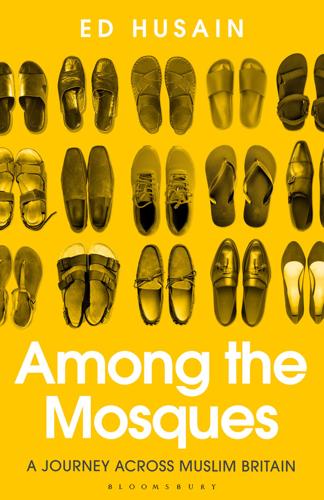
Among the Mosques: A Journey Across Muslim Britain
by
Ed Husain
Published 9 Jun 2021
‘I’ve walked along here, and there are no pubs, no major chains or brands.’ ‘All the pubs are shutting,’ says the chubby chap. ‘There’s no diversity. The reason why the pubs are shutting is so many Muslims coming into Blackburn now. There are no whites coming into these places.’ ‘We call this the Khyber Pass,’ says the thin man, pointing to the bridge and the roundabout I have just crossed. ‘We always called it the Khyber Pass, we did. ’Cause the Asian community and that, yeah, are on the other side.’ ‘Was it always like that?’ I ask. ‘In the past, when the mills were here?’ ‘No, it were diverse,’ says the chubby man. ‘Peopled mixed, we were diverse. The young Asian lads, the way they’re brought up now, because they become more Westernised, they think, “Oh, yeah, we do what we want.” ’ ‘But being Westernised is to be integrated!’
…
We walk on silently. ‘Would you come here alone if I was not with you?’ I ask Atlanta, curious. ‘No way!’ she says without hesitation. How have we sealed off parts of Britain like this in the name of multiculturalism and multiracialism? Where is the plurality here? Where are the pubs? The shops? The Khyber Pass is a tiny restaurant. Its name reminds me of that encounter in Blackburn where it was used in a negative way, to indicate the segregation occurring in the city. Dark purple cloths cover the narrow tables. They have clearly not been replaced since the smoking ban came in, as they are covered in small burn marks from cigarettes.
…
Ala is tall and thin and has a long black beard. As we greet each other he embraces me and shakes Atlanta’s hand; his warmth is immediately apparent. Given an MBE for his contributions to his local community in Birmingham, he is down-to-earth and good-natured. The venue is a world away from last night’s Khyber Pass. Huge doors flanked by full-sized cannons and marble statues of lions, and a marble foyer panelled in mirrors, are my first impressions. The seating area is massive and takes up four different rooms; there must be at least two dozen tables in the section we are seated in. Scores of waiters bustle between them, carrying trays heaped with delicious-smelling food.
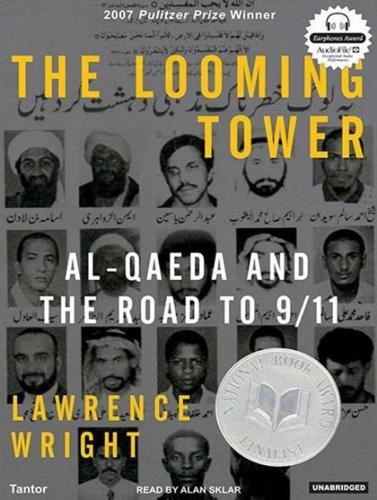
The Looming Tower: Al-Qaeda and the Road to 9/11
by
Lawrence Wright
Published 26 Sep 2006
He spent four months in Pakistan, working for the Red Crescent Society, the Islamic arm of the International Red Cross. The name Peshawar derives from a Sanskrit word meaning “city of flowers,” which it may have been during its Buddhist period, but it had long since sloughed off any refinement. The city sits at the eastern end of the Khyber Pass, the historic concourse of invading armies since the days of Alexander the Great and Genghis Khan, who left their genetic traces on the features of the diverse population. Peshawar was an important outpost of the British Empire, the last stop before a wilderness that stretched all the way to Moscow.
…
Thanks to bin Laden’s generous subsidy, many of them settled in the suburb of Hayatabad, a neighborhood of two-story tract houses at the edge of the Tribal Areas, provided with all the modern conveniences—refrigerators, washing machines, dryers, and so on. Indeed, many of them lived more comfortably than bin Laden. Across the Khyber Pass was the war. The young Arabs who came to Peshawar prayed that their crossing would lead them to martyrdom and Paradise. As they passed the time, they traded legends about themselves, about the call that had drawn young Muslims to free their brothers in Afghanistan. In fact the war was being fought almost entirely by the Afghans themselves.
…
Arms shipments poured into the port of Karachi. The ISI, which divvied the weapons among the Afghan commanders, needed a repository, preferably outside of Pakistan but not within the grasp of the Soviets. There is a distinctive portion of the Tribal Areas that juts into Afghanistan along a range of mountains southwest of the Khyber Pass known as the Parrot’s Beak. The northern slope of the Parrot’s Beak is called Tora Bora. The name means “black dust.” Remote and barren, the place is rich in caves made of super-hard quartz and feldspar. Bin Laden expanded the caverns and constructed new ones to serve as armories. It was here, in the warren of ammunition caves that he built for the mujahideen, that bin Laden would one day make his stand against America.
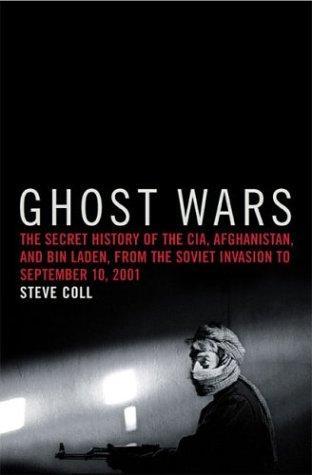
Ghost Wars: The Secret History of the CIA, Afghanistan, and Bin Laden, from the Soviet Invasion to September 10, 2011
by
Steve Coll
Published 23 Feb 2004
“Our ultimate goal is the withdrawal of Soviet troops from Afghanistan,” Brzezinski wrote in a Top Secret memo a week later. “Even if this is not attainable, we should make Soviet involvement as costly as possible.”31 Anti-Soviet fever swept Washington, arousing support for a new phase of close alliance between the United States and Pakistan. Together they would challenge the Soviets across the Khyber Pass, much as the British had challenged czarist Russia on the same Afghan ground a century before. Yet for the American staff left behind to work near the charred campus of the U.S. embassy in Islamabad, half a day’s drive from the Khyber, the Soviet invasion was a doubly bitter turn of events. They were shocked by Moscow’s hegemonic violence and at the same time angry that Pakistani dictator Zia-ul-Haq would benefit.
…
They linked up with one of the hanged Bhutto’s sons, Murtaza, and helped him carry out hijackings of Pakistani airliners.16Zia suspected that India’s intelligence service was involved as well. If Soviet-backed communists took full control in Afghanistan, Pakistan would be sandwiched between two hostile regimes—the Soviet empire to the west and north, and India to the east. To avoid this, Zia felt he needed to carry the Afghan jihad well across the Khyber Pass, to keep the Soviets back on their heels. A war fought on Islamic principles could also help Zia shore up a political base at home and deflect appeals to Pashtun nationalism. Zia knew he would need American help, and he milked Washington for all he could. He turned down Carter’s initial offer of $400 million in aid, dismissing it as “peanuts,” and was rewarded with a $3.2 billion proposal from the Reagan administration plus permission to buy F-16 fighter jets, previously available only to NATO allies and Japan.17Yet as he loaded up his shopping cart, Zia kept his cool and his distance.
…
An alcoholic, Wilson abused government privileges to travel the world first class with former beauty queens who had earned such titles as Miss Sea and Ski and Miss Humble Oil. Almost accidentally (he preferred to think of it as destiny), Wilson had become enthralled by the mujahedin. Through a strange group of fervently anticommunist Texas socialites, Wilson traveled often to meet Zia and to visit the Khyber Pass overlooking Afghanistan. He had few Afghan contacts and knew very little about Afghan history or culture. He saw the mujahedin through the prism of his own whiskey-soaked romanticism, as noble savages fighting for freedom, as almost biblical figures. Wilson used his trips to the Afghan frontier in part to impress upon a succession of girlfriends how powerful he was.

The 9/11 Wars
by
Jason Burke
Published 1 Sep 2011
One of the legacies of the Khyber region’s role in the 1980s as a rear area for the Afghan mujahideen were the numerous arms factories and dealers. When Zaheer cited his father’s name to one merchant in the town of Landi Kotal, high in the Khyber Pass, the man simply opened his warehouse doors and handed over 450 Kalashnikovs, rocket-propelled grenade launchers, light machine guns and ammunition. After receiving an admonitory call from his father, Zaheer led his men at night across a smugglers’ track from the top of the Khyber Pass and on to the main road leading from the official border crossing to Jalalabad, 10 miles inside Afghanistan. The march took until dawn. When the fighters reached the main road to the city, they easily routed a unit of fifty Taliban, teenagers mostly, still cleaning their teeth with neem sticks and making tea for breakfast when Zaheer’s men found them.
…
Instead he had himself smuggled over the Iranian border into the south-western corner of Afghanistan before cutting back into Pakistan across the unguarded desert. Keeping to remote back roads running across the arid mountain wastes of the Pakistani province of Baluchistan, he headed east and then swung north, following much of the length of the 1,600-mile-long frontier and finally reaching Peshawar, at the foot of the Khyber Pass and just 25 miles from the Afghan border and 120 miles from his destination, Jalalabad, after three days of solid travelling. The already substantial population of Afghan refugees, parked for a decade or more in sprawling refugee camps on the outskirts of the city, had been swollen by new arrivals fleeing the American bombing, but otherwise little had changed since Zaheer had last been in the city five years before.
…
In 1998 or 1999 it was still possible for a Western journalist to travel in the FATA – the author even spent an afternoon at a dastarbandi, or graduation ceremony, at one medressa near Miram Shah, eating chicken cooked with oranges as successive diners arrived and stacked their Kalashnikovs in a corner – but such trips rapidly became risky. The 9/11 attacks thus came at a critical time. As was so often the case, the new conflict they triggered only aggravated and accelerated existing trends. In 2001, the memory of the earlier wars was certainly very present. In the Khyber Pass a month after the bombing of Afghanistan had started, young men from the local Afridi tribe were very clear about what the coming conflict meant for them. ‘Our fathers, their fathers and their fathers’ fathers fought jihad,’ one said on a starry night in a compound a few miles short of the Afghan frontier.
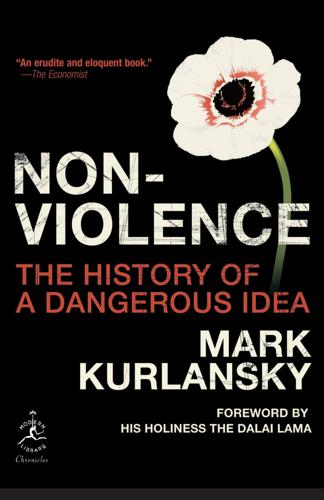
Nonviolence: The History of a Dangerous Idea
by
Mark Kurlansky
Published 7 Apr 2008
But those who dismiss Gandhi's accomplishments because they were “only against the British” are also overlooking how ruthless and brutal British colonial rule could be. The history of British rule on the Subcontinent belies this myth, especially their treatment of the Pathans along the Hindu Kush, with its strategic Khyber Pass, where the British tried to control by fear the gateway from Afghanistan to India for a century. In 1842 the British attempted to secure the area by sending their 4,500-man Army of the Indus through the Khyber Pass. One survivor made it to Fort Jalalabad. But the British were determined to subdue the Muslim tribesmen, the Pathans, who were said to be one of the most warlike people in the world. So were—it is so easily forgotten—the British.
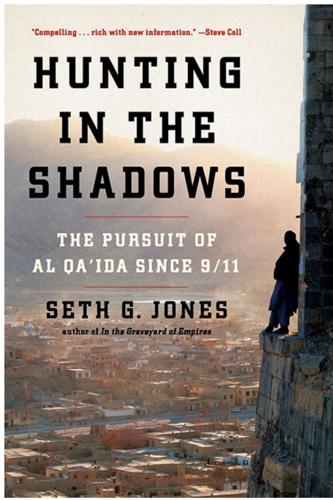
Hunting in the Shadows: The Pursuit of Al Qa'ida Since 9/11: The Pursuit of Al Qa'ida Since 9/11
by
Seth G. Jones
Published 29 Apr 2012
Kennedy (JFK) International Airport, plot against, 303–9, 318 Joint Chiefs of Staff, 66 Joint Intelligence Committee, 197–98 Joint Special Operations Command (JSOC), 255, 422–23 Joint Terrorism Analysis Centre (JTAC), 184, 197 Joint Terrorism Task Force (JTTF), 298, 306, 328, 329, 330 Joint Terrorism Task Force, Chicago, 368 Joint Terrorism Task Force, Denver, 333 Joint Terrorism Task Force, New York, 407, 408, 410 Joint Terrorism Task Force, San Diego, 362, 366 Joint Terrorism Task Force, Washington, 363 Jones, Cristina, 127 Jones, Sherry, 382 Jordan, 39, 90–91, 145, 151–52, 159–60, 220, 240, 248, 252, 253, 282, 443 Jordan, Michael, 368 Juan Carlos, King of Spain, 161 Jughrafiya, Mudarris, 281 Julius Caesar (Shakespeare), 443–44 July 7 terrorist attacks, see London, July 7 terrorist attacks in Junud, Kuluna, 236 Justice Department, U.S., 123 Kabul, 58, 178, 329 fall of, 57, 68, 70, 76 U.S. embassy in, 71 Kadir, Abdul, 304, 306, 308 Kalay, Sayed Slim, 70 Kandahar Province, 76, 82, 84, 98, 116, 118, 318, 321 Kaneen bombings, 146 Karachi, Pakistan, 84, 92, 99, 104, 116, 117, 121, 132, 179, 372 al Qa’ida safe houses in, 101–2 Kargil, 83 Karzai, Hamid, 70, 71, 87, 315, 359 Kashmir, 83, 93, 131, 145, 189, 193, 200, 378 Kashmiri, Ilyas, 371, 384, 386–90, 395, 429 Kay, David, 149 Kelly, Raymond, 328, 407 Kennedy, John F., 307 Kenya, U.S. embassy bombed in, 24, 47–48, 51, 52, 74, 274, 437 Khafre, 261 Khaldan training camp, 91, 124 Khaliq, Abd al-, 180 Khan, Amanullah, 181 Khan, Arafat Waheed, 22 Khan, Gultasab, 189 Khan, Majid, 103, 134–37 Khan, Mohammad Sidique, 185–90, 193, 199, 207, 209, 212–13, 223, 268, 269, 436, 442 bomb-making by, 205, 326 in discussions with Khyam, 194–95, 200–201 in Leeds underground, 194 London attacks planned by, 205 MI5’s lack of surveillance of, 198 threat by, 204 training of, 200–201, 203–4 Khan, Mohammed Qayum, 194 Khan, Tika, 187 Khan, Waqar, 436 Khartoum, 26, 29–31, 39–40 Khasadar force, 234 Khatami, Mohammad, 72 Khatchadourian, Raffi, 221 Khowst Province, 57, 77, 91, 106, 118 Khufu, 261 Khyam, Omar, 184, 194–95, 199, 200–201 MI5’s monitoring of, 195 training of, 200 Khyber Pass, 88 Khyber Pass Railway, 311 King Abdul Aziz University, 44 King’s Cross Station, 208 Kingston, Winston, 304 Kini, Talha al-, see Muhammad, Binyam Ahmed Kitab al-Siyar al-Kabir (Shaybani), 72–73 Knights Under the Prophet’s Banner (Zawahiri), 23, 45, 265 Koltuniak, Carol, 217 Konar Province, 77, 84, 428 Konrath, Jon, 217–18 “Koranic World View as It Relates to Muslims in the U.S.
…
As the plane taxied down the runway, Najibullah Zazi and his two colleagues, Adis Medunjanin and Zarein Ahmedzay, strained to peer through the plane’s oval windows. From the runway they could see the airport’s main terminal, a squat, rectangular building with grimy windows and a hulking crystal-blue sign outside that read PESHAWAR INTERNATIONAL AIRPORT. At one end of the airport a railroad line cut diagonally across the runway, a relic of the Khyber Pass Railway, the colonial-era route that zigzagged through the rugged snowcapped mountains along the Afghanistan-Pakistan border. The three men had departed the day before from Newark International Airport on Qatar Airlines Flight 84.1 “Our plan,” said Zazi, “was to go to Afghanistan and fight with the Taliban.”2 Zazi, who sometimes went by Najib, was a handsome twenty-four-year old immigrant from Afghanistan living in the United States.
…
During the hostilities, India’s air force conducted a bombing raid that hit his school.17 He may not have minded that his classes were canceled. Headley acknowledged that he was a “very bad” student. His relationship with his stepmother also had begun to deteriorate.18 At age seventeen he moved back to the United States to join his biological mother, who ran a bar called the Khyber Pass in Philadelphia. In 1985, Headley’s mother put him in charge of the bar, an odd place for a Muslim to work. Perhaps unsurprisingly, Headley began to drink. He chased women and eventually started to smuggle heroin from Pakistan to the United States to make money. In 1988 he was arrested in Germany by DEA agents for heroin possession and distribution, and was sent to U.S. federal prison.19 After his release he moved to New York City and opened a video rental business in 1996, but in 1997 he was arrested again for heroin possession and distribution.20 This was a pivotal moment for Headley as a Muslim.
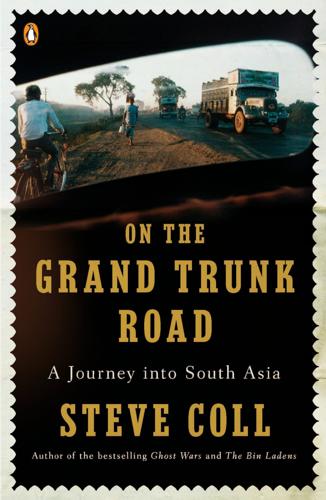
On the Grand Trunk Road: A Journey Into South Asia
by
Steve Coll
Published 29 Mar 2009
On South Asian roads, where the chance of being accidentally blind-sided is high, horn-honking is an act of courtesy. Should it ever become an Olympic event, the Indians would have a leg up for technical prowess, but the Pakistanis, who like to wire snippets from Western popular songs into their steering columns, would score well for creativity. Once, stuck at the Khyber Pass, I listened to a Pakistani truck driver push his way through a traffic jam leading into Afghanistan by using a horn that played at deafening volume the refrain from Never on Sunday. Cars and trucks peeled out of his way just so they wouldn’t have to listen to the damned tune anymore. Inside our spacious Tata cab, Singh kept his distance and projected a hard, lonely demeanor.
…
On the floor of the cab each team kept a single fully loaded assault rifle, a practice more discreet than that of some ordinary Pakistani drivers, who don’t mind dangling their weapons out the window as they overtake bothersomely sluggish cars. In this state of preparation the ISI trucks rolled slowly to Peshawar, the dusty frontier town lodged against the hills beneath the Khyber Pass, on the Afghan border. Day in and day out for nearly a decade these trucks laden with weaponry rolled to Peshawar and then came back empty to Rawalpindi following an overnight stop, during which Afghan rebels backed by the CIA and ISI unloaded the goods into unmarked Peshawar warehouses. Throughout the enterprise the trucks encountered no Soviet agents or highway bandits or saboteurs, the man who ran the program, Mohammed Yousaf, later assured me.
…
Kanpur, India Karachi, Pakistan Karmal, Babrak Kashmir, India; counterinsurgency campaign in ; separatist guerrilla movements in ; vote-rigging in Kathmandu, Nepal Kennedy, Robert F. Kerala, India Khala Pahar (‘Black Mountain’) Khalid (guerrilla) Khan, A. Q. Khan, Kamran; investigation of Zia ul-Haq crash ; knife attack on Khan, Mohammed Amir Mohammed (‘Suleiman’) Khanna, Ajay Khayal, Ghulam Nabi Khomeini, Ayatollah Ruhollah Khyber Pass kidnappings Kipling, Rudyard Koran Korea Kotagoda, Sri Lanka Kumar, Dinesh Kumar, Tardip Kumari, Ranjana Kuwait Lai, Rajesh Kumar Lakshmi, Rama Lal, Bahwaral land ownership land reform Latin America Layec, Suleiman Liberation Tigers of Tamil Eelam (LTTE) ; and political assassination; suicide attacks of life expectancy rates literacy rates Lockheed Corporation Lodhi, Maleeha London School of Economics Louis XVI (king of France) Lucknow, India McGee, Jim Maharashtra, India Mahendra (king of Nepal) Mahmudabad, India Mahule, S.
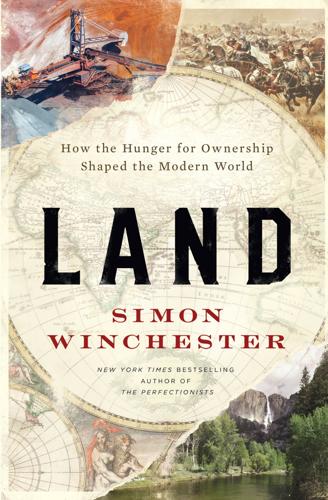
Land: How the Hunger for Ownership Shaped the Modern World
by
Simon Winchester
Published 19 Jan 2021
Most biographical mentions of him minimize mention of his work in the subcontinent, even though it remains the Radcliffe Line—This Bloody Line, he called it—for which he is best known. It may be easy to blame the outrage over the drawing of the Radcliffe Line on the plain fact that it was British inspired, its twists and turns drawn with a British fountain pen by one of the British empire’s architects. But that would be too simplistic. Over at the Khyber Pass the Durand Line, also a relic of the empire, drawn half a century before, confirms a natural division between empires and civilizations that is in most places marked organically, by ranges of mountains. It is notable that the Durand line had been formally surveyed and marked by a succession of joint Afghan-British teams, working under the superintendence of the British civil servant after which the line is named, Sir Mortimer Durand.
…
As to whose land it truly was, has been, and now properly is, none shall ever agree. Geology, geography, and topography have long determined some goodly portion of the region’s fate. Palestine’s dunes and fertile plains were on the ancient caravan route between Egypt and Mesopotamia, and like so many of the world’s passageways today—the Strait of Hormuz, the Fulda Gap, the Khyber Pass, Suez, the Hudson-Mohawk Gap, the Strait of Malacca—they have long been a place of fierce contest, of permanent watchfulness, and of determined protection. The Israelites, one of the many local Egyptian tribes, passed through and over this passageway in a complex tarantella of expulsion and exile, of settlement (the first time in around 1400 BCE), as well as of massacre and misery, and which they endured for centuries.
…
*The idea of the frontier here was long memorialized on the permanent way by the Frontier Mail, one of the great Indian express trains. Originally run by the Bombay, Baroda and Central India Railway, it was a daily service between Bombay Ballard Pier—connecting with the P&O steamers—and Peshawar, just below the climb to the Khyber Pass (beyond there was a smaller, steam-hauled railway to Landi Kotal, at the Afghan border). Peshawar is now in Pakistan; there is no direct train connection with India. And there are no passenger trains at all in Afghanistan. *In the mid-eighteenth century the German-born but London-based astronomer William Herschel and his sister Caroline between them discovered a score of comets, twenty-five hundred nebulae, and, most notably, the planet Uranus.

Toast
by
Stross, Charles
Published 1 Jan 2002
Lastly: there is no sign of the causative agent even deviating from its course, but the entire area is depopulated. Except for excarnated residue there is no sign of human habitation. In the presence of such unique indicators, we have no alternative but to conclude that the Soviet Union has violated the Dresden Agreement by deploying GOLD JULY BOOJUM in a combat mode in the Khyber Pass. There are no grounds to believe that a NATO armoured division would have fared any better than these mujahedin without nuclear support . . . Puzzle Palace Roger isn’t a soldier. He’s not much of a patriot, either: he signed up with the CIA after college, in the aftermath of the Church Commission hearings in the early seventies.
…
The Iranians got itchy and finally went nuclear. Trouble is, they did so two hours before that speech. Some asshole in Plotsk launched half the Uralskoye SS-20 grid—they went to launch on warning eight months ago—burning south, praise Jesus. Scratch the middle east, period—everything from the Nile to the Khyber Pass is toast. We’re still waiting for the callback on Moscow, but SAC has put the whole Peacemaker force on airborn alert. So far we’ve lost the eastern seaboard as far south as North Virginia and they’ve lost the Donbass basin and Vladivostok. Things are a mess; nobody can even agree whether we’re fighting the commies or something else.
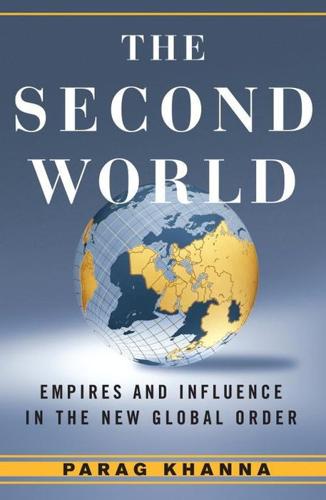
Second World: Empires and Influence in the New Global Order
by
Parag Khanna
Published 4 Mar 2008
South of the Hindu Kush, the Durand Line, which nominally divides Afghanistan and Pakistan, remains an imaginary boundary, as evidenced by the flow of weapons northward and the flight of Afghan refugees southward during the anti-Soviet insurgency. The two countries have been linked by the Khyber Pass through centuries of conquest dating back to Alexander the Great. Smuggling and trade remain synonymous over the Khyber Pass, where today a constant stream of trucks carrying cement and fruit snakes up and down its narrow passages to Afghanistan—a supply channel that will remain necessary for decades. Pakistan is still home to approximately two million Afghans, who over the past thirty years have turned once-leafy Peshawar into a roiling, overcrowded dump of rubbish-clogged streams.
…
Half-baked “Peace Jirgas” to unite the tribes on either side of the border under the banner of counterterrorism only expose the futility of American, Afghan, and Pakistani government efforts to tame the tribal frontier through schemes that none of them has the competence to implement. Under intense Western pressure, Pakistan is effectively at war with itself. As far back as the fifth century B.C., Buddhist sanctuaries with marvelous stone stupas such as Taxila thrived in northern Pakistan. Today, halfway between Peshawar, at the base of the Khyber Pass, and the tidy, lattice-grid capital of Islamabad, the tribal areas feature law by jirga (tribal elder councils), and blood feuds reign. “By funding the madrasahs, the Saudi government has had more influence here than our own government, which has let the schools and homes crumble,” pointed out a chauffeur who has been shuttling between the two cities for twenty years.
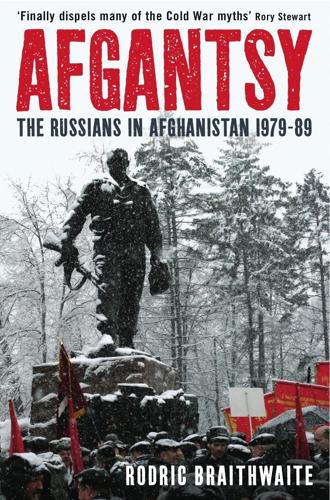
Afgantsy: The Russians in Afghanistan, 1979-89
by
Rodric Braithwaite
Published 15 Jan 2011
Here even quite small numbers of determined men can hold their own against a powerful enemy column. You occupy the overlooking heights, block the front and rear of the column, and then destroy your enemy at leisure. This is what happened to the British ‘Army of the Indus’ in January 1842 on the road east from Kabul through Jalalabad to the Khyber Pass. More than a hundred years later the mujahedin would man the heights overlooking the route of the slow-moving Soviet columns, with their cumbersome lorries and their escorting tanks and personnel carriers. They would knock out the first and last vehicles with a mine or a rocket, and then systematically destroy the remainder.
…
They were also given the task of hunting down and capturing – dead or alive – foreign advisers attached to the mujahedin; persuading mujahedin commanders to bring their bands over to the government side; and sowing dissension between bands so that they fought one another instead of the Russians – the tactic adopted by Rudyard Kipling’s hero on the Khyber Pass in the last chapter of Stalky & Co.18 Of course the Afghans were playing a similar game, and fed the Russians with false information to provoke operations against their own personal or tribal enemies. The KGB’s teams formed part of an organisation called Kaskad, which Andropov set up in the summer of 1980.19 It consisted of about a thousand KGB special forces officers, stationed in eight different places throughout Afghanistan.
…
Afghan Communist president 17, 38–40, 42, 62, 78, 103–4, 139, 148, 165, 223, 271, 276 Complains about atrocity to Brezhnev 229 Favoured by KGB 60 Inadequacies of 241 KGB brings into plan against Amin 60 Russians decide he must go 274 Secretly flown into Bagram 83 Shocked to hear Soviets intend to pull out 272 Systematically purges officers 136 Karpaty, KGB special forces unit 193 Karpenko Alexander, bard and military interpreter 193 Kartsev Lieutenant Alexander 126–7, 130, 180, 183, 238 Karzai Hamid (1957-), President of Afghanistan 139 Kaskad, KGB special forces detachment 134, 193–4 Kaskadery, ‘stuntmen’ – KGB special forces officers 134 Katichev Stanislav, senior military adviser in Herat 45 KGB Finally abandons Kabul 299 Grom special forces detachment 91, 93, 99, 116 KGB frontier post attacked in Tajikistan 306 Long experience in Afghanistan 60 Memorandum proposes action against Amin 59 Zenit special forces detachment 56–7, 68–9, 82, 91, 93–4, 98, 101, 116 KGB advisers 93 Khabarov Captain – Bitterness over futility of war 223 KhAD, Afghan secret intelligence agency 134–5, 137–9, 182–3, 194, 275, 298 Respected by KGB 202 Successfully penetrate mujahedin 139 Khaibar Mir Akbar, party ideologist, murdered 40 Khalbaev Major, commander of Muslim Battalion 56, 63, 90–91, 93 Khalil General, Afghan intelligence chief, arrested as spy 139 Khalq, faction in Afghan Communist Party 31, 38–43, 58, 60, 104, 275 Khanif, Afghan youth organiser 163 Khiva, Central Asian city 18–19, 22, 24 Khoroshavin Alexander, soldier in 860th Regiment 158 Khost. Afghan city 151, 165, 204, 213–15 Falls to mujaheddin 299 Khrushchev Nikita (1894–1971), Soviet politician 30, 33, 78, 113 Khyber Pass 129 Kipling Rudyard (1865–1936) 12, 134, 192, 227 Kirpichenko General, KGB 82, 105 Kirsanov Yuri, KGB officer, bard 193 Kiselev Yevgeni, interpreter, later TV anchorman 83, 153–4, 208 Kissinger Henry (1923–), US Secretary of State 30 kizyaki, dried dung fuel 130 Klimov Sergei, bard 193, 312 Klintsevich, Frants, veteran, politician 317–18, 327–8 Kobalt, Interior Ministry special forces unit 134–5 Kokand, Central Asian city 22 Kolesnik (Kozlov) Colonel, GRU staff officer 63, 90–94, 96, 102 Komissarov Nikolai, Komsomol youth organiser 166 Komsomol, Soviet Young Communist League 150, 152–3, 162, 165, 244, 259, 316 Komsomolskaya Pravda, newspaper 155, 189, 239, 243, 315 Konovalov Captain Yevgeni, officer in 860th Regiment 180, 300–301 Koshelev Vladimir, bard 312 Kosogovski General, Chief Interior Ministry adviser 74, 228 Kostenko General, adviser to Afghan Chief of Staff 100–101 Kosygin Aleksei (1904–80), Soviet prime minister 46–7, 49–52, 104 Tells Afghans Soviets won’t send troops 7 Kotenov Alexander, sets up veterans’ organisation 317 Kotlyarovskoe Cemetery, Moscow 317 Kovalev.

The River of Lost Footsteps
by
Thant Myint-U
Published 14 Apr 2006
The eastern Greeks, themselves descendants of Alexander’s men, would be among the most fervent of the new followers, transforming their kingdoms in Bactria and northwestern India into centers of Buddhist art and scholarship and producing the very first images of the Buddha, based on models of Apollo. Even today the Burmese word for college, tekkatho, is from Taxila, a long-ago center of Indo-Greek Buddhist learning just to the east of the Khyber Pass. Burmese tradition says that two Burmese merchants named Tapussa and Ballika, natives of the area around Rangoon, were traveling in North India when they by chance met the Buddha soon after his enlightenment. They offered him rice cakes and honey and asked him for a token of their visit. He gave them eight hairs from his head, and on their return these eight hairs were enshrined deep within what became the Shwedagon Pagoda, the country’s holiest shrine, and the hairs have remained there ever since.
…
The Bengal sultanate was gone, and Mughal Bengal was Mrauk-U’s new neighbor. Shah Shuja was a first-rate soldier. As a young prince he had taken part in many military campaigns, and even as viceroy he twice broke his tenure to travel to the northwest, where he led the fighting against Afghan rebels along the Khyber Pass. A typical Mughal aristocrat, Shah Shuja was also a man of considerable learning, cultured and polished, and his court was soon filled with appropriately refined Persian poets and scholars. There were minor border wars, against the kingdom of Kamarupa in the north and the small dependency of Cooch Behar, but otherwise Bengal was largely at peace, and the local zamindars seemed overawed by the presence of a member of the imperial family as their immediate overlord.
…
His character does not fit him for regular and permanent work, and he will even give up the wages which are due to him if he gets tired of his place and thinks he would like to take up something else.23 By the early twentieth century past images of Burma, of a corrupt and brutal Oriental tyranny, bound up in ageless custom, had given way to a lighter, less serious picture of a childlike and happy people, not particularly hardworking or well disciplined but with many attractive qualities and a welcome sense of individuality and independence. There was not really a counterpart to the hated Bengali babu or to the romanticized virile fighters of the Khyber Pass. To some extent the British looked backward for the sort of Burman they liked, someone like Maung Hlwa, Thibaw’s governor of Ava—“an official of the good old Upper Burma type. Not overeducated, without delicate scruples, of proven courage, with boundless personal influence”—someone they could work with and who wouldn’t make much of a fuss.
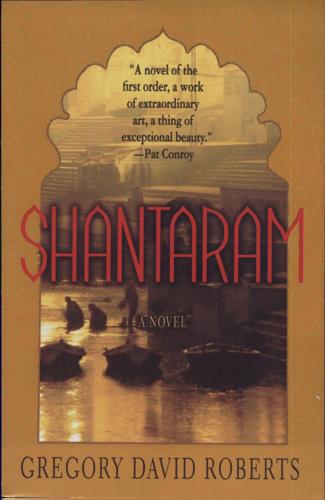
Shantaram: A Novel
by
Gregory David Roberts
Published 12 Oct 2004
‘In November of 1878, the same month that we started this mission, the British forced their way through the Khyber Pass, and the second Afghan war with them began,’ Khader said, ignoring my report, or perhaps responding to it in his own way. He stared toward the ripple of haze on the horizon caused by the smoke and fire of distant Kandahar. I knew that some of the horizon’s shimmer and drizzle might’ve been exploding rockets, fired into the city by men who’d lived there once as teachers and merchants. In the war against the Russian invaders, they’d become devils in exile, raining fire upon their own homes and shops and schools. ‘Through Khyber Pass, there came one of the most feared, brave, and brutal soldiers in the whole British Raj.
…
One little girl slipped her arm around my right leg, and hugged me with artless affection. Abdullah spoke in very simple Hindi, repeating some passages in English, when he perceived that I hadn’t understood. He began by talking of the British Raj, the time when Europeans controlled all of India from the Khyber Pass to the Bay of Bengal. The firengi, the foreigners, he said, gave lepers the lowest priority on their scale of privileges and entitlements. As the last in line, lepers often missed out on the limited supply of medicines, bandages, and medical treatment. When famine or flood struck, even the traditional medicines and herbal remedies were in short supply.
…
But with a little luck and skilful connivance, the profiteers hoped, the army might remain in control of the country—and the well-established channels of corruption—for some years yet. The talk was of cash crops, a euphemism for contraband and black-market trade goods, which were in great demand along the entire border between Pakistan and Afghanistan. Cigarettes, particularly American blends, were selling at Khyber Pass for sixteen times their already inflated Karachi price. Medicines of every kind were generating profits that increased in scale from month to month. Winter clothing, suitable for snow habitats, was exceptionally marketable. One enterprising German freebooter had driven a Mercedes truck loaded with surplus German army alpine-issue uniforms, complete with thermal underwear, from Munich to Peshawar.
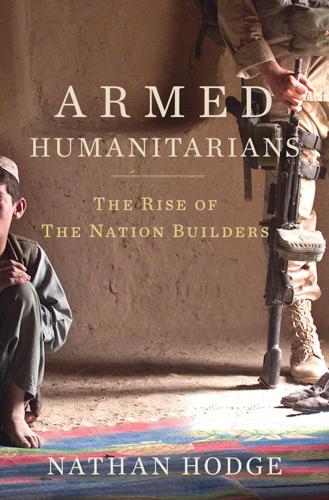
Armed Humanitarians
by
Nathan Hodge
Published 1 Sep 2011
She was uncomfortable, and her headscarf kept slipping off, but she didn’t want to show any fear. She kept her composure, and the meetings, about an electrification project and a government proposal to move the border post, went without a hitch. On the ride back to Jalalabad, she reviewed her first day on the job: the insane helicopter ride from Kabul, the gorgeous ride down to the Khyber Pass. Not a bad first day of work. She was hooked. Parker was a natural for the role: As a woman she felt no peer pressure, no need to fit in with the “band of brothers” culture of the military. She would never be part of the boys’ club. For her, as a strong, independent woman, living alone on a military base, it was liberating to be outside the group.
…
One of the more ambitious road projects begun in the summer of 2009 was the Parwan-to-Bamyan road, a major project for the north of Afghanistan that would link the isolated highland province of Bamyan with the rest of Afghanistan, and help create an alternative northern transportation route for the country. It was of strategic importance as well. The main highway linking Afghanistan to the southern ports of Pakistan passed through the vulnerable Khyber Pass, and supply convoys passing through Pakistan had come under increased attack by militants. Bamyan Province was home to the Hazaras, Afghanistan’s most oppressed and downtrodden minority group, most of them Shia Muslims. Subjugated by the country’s Pashtun rulers and relegated to manual labor, they often worked as housemaids or night watchmen in Kabul.

Wireless
by
Charles Stross
Published 7 Jul 2009
Lastly: there is no sign of the causative agent even deviating from its course, but the entire area is depopulated. Except for excarnated residue, there is no sign of human habitation. In the presence of such unique indicators, we have no alternative but to conclude that the Soviet Union has violated the Dresden Agreement by deploying GOLD JULY BOOJUM in a combat mode in the Khyber Pass. There are no grounds to believe that a NATO armored division would have fared any better than these mujahedin without nuclear support . . . PUZZLE PALACE Roger isn’t a soldier. He’s not much of a patriot, either: he signed up with the CIA after college, in the aftermath of the Church Commission hearings in the early seventies.
…
The Iranians got itchy and finally went nuclear. Trouble is, they did so two hours before that speech. Some asshole in Plotsk launched half the Uralskaye SS-20 grid—they went to launch on warning eight months ago—burning south, praise Jesus. Scratch the Middle East, period—everything from the Nile to the Khyber Pass is toast. We’re still waiting for the callback on Moscow, but SAC has put the whole Peacemaker force on airborne alert. So far we’ve lost the Eastern Seaboard as far south as northern Virginia, and they’ve lost the Donbass Basin and Vladivostok. Things are a mess; nobody can even agree whether we’re fighting the commies or something else.
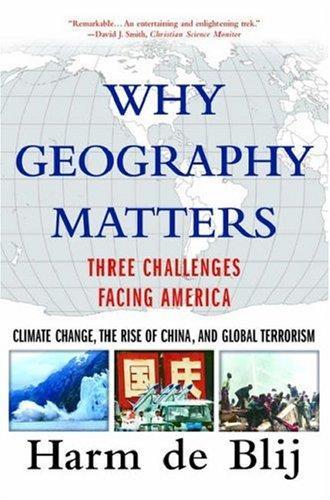
Why geography matters: three challenges facing America : climate change, the rise of China, and global terrorism
by
Harm J. De Blij
Published 15 Nov 2007
The physiography of Afghanistan and the country's relative location made it a receptive locale for such purposes. Nearly the size of Texas, compact in shape except the protrusion of land called the Vakhan Corridor extending eastward to touch China, mountainous in the center with countless valleys and steep-walled, strategic passes among which the Khyber Pass is the most crucial, and wedged between Shi'ite Iran to the west and Sunni Pakistan to the east, Afghanistan is the very definition of remoteness, isolation, and fragmentation (Fig. 8-1). In the east, rugged, forested terrain marks the border area with Pakistan, and in this cave-riddled topography Usama bin Laden was able to escape his pursuers, making his way (in all probability) across the border from Tora Bora and hiding on the rugged, wild, culturally closed Pakistani side.
…
Even the main "highway" between the national TERRORISM'S WIDENING CIRCLE 159 capital Kabul and the "southern capital" Kandahar was a potholed stretch of gravel along which robbers lay in wait. If we had a map of traffic flows in Afghanistan, we would find that more movement took place between Afghanistan's periphery and neighboring countries, for example from Herat to Iran and from Mazar-e-Sharif to Uzbekistan, than within Afghanistan itself (the heavily used Khyber Pass and other eastern passes to Pakistan would confirm this). Most of the four-fifths of the population living in the rural areas subsisted on unreliable food crops or opium-poppy cultivation. A few valleys, such as the Panjshir in the northeast, were well watered and had soils that could be depended on to yield good annual harvests, but the majority of farmers lived a difficult life of uncertain subsistence.
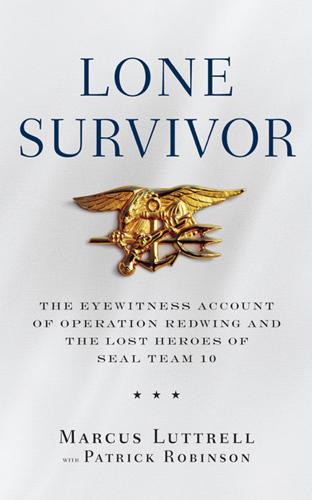
Lone Survivor: The Eyewitness Account of Operation Redwing and the Lost Heroes of SEAL Team 10
by
Marcus Luttrell
and
Patrick Robinson
Published 11 Jun 2006
And we realized the importance of our coming missions, to halt the ever-burgeoning influx of Taliban recruits streaming in over the high peaks of the Hindu Kush and to capture their leaders for interrogation. The seven-hour journey from Bahrain seemed endless, and we were still an hour or more south of Kabul, crawling north high above the treacherous border that leads directly to the old Khyber Pass and then to the colossal peaks and canyons of the northern Hindu Kush. After that, the mountains swerve into Tajikstan and China, later becoming the western end of the Himalayas. I was reading my guidebook, processing and digesting facts like an Agatha Christie detective. Chaman, Zhob, key entry points for the Taliban and for bin Laden’s al Qaeda as they fled the American bombs and ground troops.
…
I recall thinking he didn’t look much like a doctor to me, not wandering around on the edge of this mountain like a native tracker. But there was something about him. He didn’t look like a member of al Qaeda either. By now I’d seen a whole lot of Taliban warriors, and he looked nothing like any of them. There was no arrogance, no hatred in his eyes. If he hadn’t been dressed like a leading man from Murder up the Khyber Pass, he could have been an American college professor on his way to a peace rally. He lifted up his loose white shirt to show me he had no concealed gun or knife. Then he spread his arms wide in front of him, I guess the international sign for “I am here in friendship.” I had no choice but to trust him.
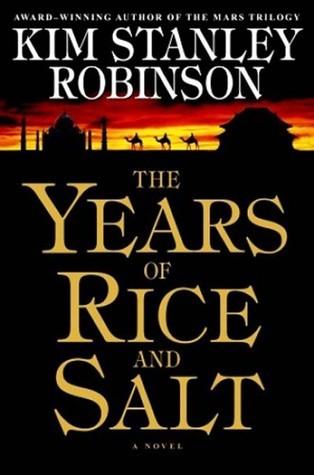
The Years of Rice and Salt
by
Kim Stanley Robinson
Published 2 Jun 2003
The tomb became a thing of pure white light, glowing in the cool green light of the trees, the trees of green light, and the fountain poured its water of light up into the lit air, and the walls of the courtyard were bricks of light, and everything was light, pulsing lightly. He could see through the Earth, and back through time, over a Khyber Pass made of slabs of yellow light, back to the time of his birth, in the tenth day of Moharram, the day when the Imam Hosain, the only living grandson of Mohammed, had died defending the faith, and he saw that whether or not Akbar had him killed he would live on, for he had lived before many times, and was not going to be done when this life ended.
…
Now when they camped at night they met no one at all, but bedded down in tents or under the stars, sleeping to the sound of the wind in the trees, and the clattering brooks, and the shifting horses against their harness lines. Eventually the road wound up among rocks, a flat way leading through a rockbound pass, then across a mountain meadow among the peaks, then up through another tight pass, flanked by granite battlements; and then down at last. Compared to the Khyber Pass it was not much of a struggle, Bistami thought, but many in the caravan were shivering and afraid. On the other side of the pass, rockslides had buried the old road repeatedly, and each time the road became a mere foot trail, switchbacking at sharp angles across the rockslides. These were hard going, and the Sultana often got off her horse and walked, leading her women with no tolerance for ineptitude or complaint.
…
Many decided to return to Frengistan, which though full of petty taifa conflict, was at least Muslim entire, its little khanates and emirates and sultanates trading between themselves most of the time, even when fighting. Such decisions as these would soon cripple Samarqand. As an endpoint in itself it was nothing, the mere edge of Dar al Islam. Nadir was worried, and the Khan in a rage. Sayyed Abdul Aziz ordered the Dzungarian Gate retaken, and an expedition sent to help defend the Khyber Pass, so that trade relations with India at the least would remain secure. Nadir, accompanied by a heavy guard, described these orders very briefly to Khalid and Iwang. He presented the problem as if it were somehow Khalid's fault. At the end of his visit, he informed them that Bahram and his wife and children were to return with Nadir to the Khanaka in Bokhara.
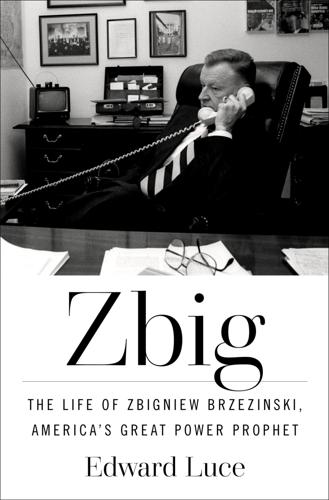
Zbig: The Life of Zbigniew Brzezinski, America's Great Power Prophet
by
Edward Luce
Published 13 May 2025
“Let us not recreate in Zia’s mind the same ambiguity that clearly existed in the Shah’s mind last year,” Brzezinski argued.133 In a separate note to Carter he wrote, “The basic decision for you is whether to jeopardize a number of your present policies (arms transfers, nuclear proliferation, and arms control) and make a comprehensive long-term response to check Soviet power, or to treat the Afghanistan affair as a minor episode in the competitive-cooperative mix of US-Soviet relations…. I strongly urge you to make this a turning point.”134 After several hotly contested debates with Vance and others, Carter took Brzezinski’s advice. That this was the backdrop to Brzezinski’s early-February trip to Pakistan. Brzezinski’s public relations stunt in the Khyber Pass on the Pakistan-Afghanistan border earned him further notoriety with his detractors at State. He was photographed pointing a Chinese-made Kalashnikov in the direction of Afghanistan. To Mondale’s and Vance’s anguish, the Washington Post and New York Times carried the picture on their front pages.
…
Amid Bedouin hospitality and lavish banquets, they nailed down the details of the American-Saudi part of the three-way secret pipeline to the mujahideen. “They told us exactly what they are prepared to do for the Pakistanis,” wrote Brzezinski.139 He returned to a chorus of tut-tutting in Washington. An irritated Mondale told Brzezinski that his “Khyber Pass imagery” had been awful.140 Vance could barely meet his gaze in a meeting. Carter seemed indulgently amused. Whenever he sent Brzezinski overseas, controversy erupted. Personal frictions aside, Brzezinski had grounds to feel chipper, as did Carter, whose Gallup rating had hit a recent peak of 55 percent.
…
Brzezinski reading on the porch of Tranquility Base, the family summer home in Maine’s Northeast Harbor. 37. Muska and Zbigniew Brzezinski (far right) on the White House ballroom dance floor with First Lady Rosalyn and President Jimmy Carter, December 1980. 38. The Brzezinski family on the Maine shore, circa 1975. 39. Brzezinski handling a Kalashnikov at a Pakistani military post on the Khyber Pass, February 3, 1980. The picture gained instant notoriety back home. 40. Brzezinski playing chess with Leonard Woodcock, former head of the United Auto Workers and first US ambassador to China, on a plane to China, May 1978. 41. Zbigniew and Muska Brzezinski greeting Pope John Paul II at Andrews Air Force Base, October 6, 1979. 42.
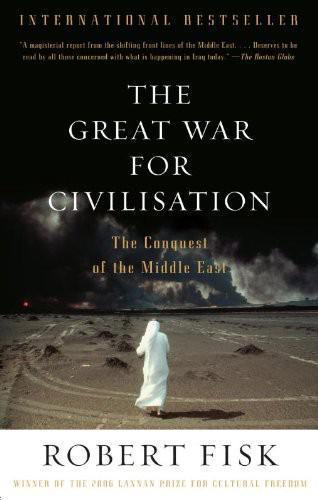
The Great War for Civilisation: The Conquest of the Middle East
by
Robert Fisk
Published 2 Jan 2005
I pulled out my map of Afghanistan, green and yellow to the west where the deserts imprison Kandahar, brown in the centre as the mountains shoulder their way towards Kabul, a big purple-and-white bruise to the north-east where the Hindu Kush separates Pakistan, India, China and the Soviet Union. The border between British India and Afghanistan was finally laid across the tribal lands in 1893, from the Khyber Pass, south-west to the desert town of Chaman (now in Pakistan), a dustbowl frontier post at the base of a great desert of sand and grey mountains a hundred kilometres from Kandahar. These “lines in the sand,” of course, were set down by Sir Mortimer Durand and recognised by the great powers. For the people living on each side of the lines, who were typically given no say in the matter, the borders were meaningless.
…
I could count the Soviet jets taking off into the afternoon sun and the explosions echoing down from the Hindu Kush and then the aircraft again as they glided back down to the runways. In wars, I only travel with those I trust. Reporters who panic don’t get second chances. Conor O’Clery of the Irish Times had talked his way up from the Khyber Pass through Jalalabad. He was already in the old telecommunications office down town, watching with an evil glint in his eye as the operator soldered the letter “w” back onto its iron stem inside the telex machine. Gavin Hewitt, a twenty-nine-year-old BBC television reporter, arrived with Steve Morris and Mike Viney, the smartest crew I’ve ever worked with, and a battered camera—these were the days of real film with its wonderful colour definition, now lost to the technology of videotape—and Geoff Hale.
…
And beside the highway, the Afghan men watched, their faces tight against the cold, their eyes taking in every detail of every vehicle. They looked on without emotion as the wind tugged at their orange and green shawls and gowns. The snow spread across the road and drifted at their feet. It was two degrees below zero but they had come out to watch the Soviet army convoy hum past on the great road east to the Khyber Pass. The Russian crews, their fur hats pulled down low over their foreheads, glanced down at the Afghans and smiled occasionally as their carriers splashed through the slush and ice on the mud-packed road. A kilometre further on, Soviet military police in canvas-topped jeeps waved them into a larger convoy in which more tanks and tracked armour on transporter lorries raced along the Jalalabad highway.

Drone Warfare: Killing by Remote Control
by
Medea Benjamin
Published 8 Apr 2013
When Roya’s father came home, he carefully collected all the bits and pieces of his pulverized family that he could find, buried them immediately according to Islamic tradition, and then sank into a severe state of shock. Roya became the head of her household. She bundled up her surviving sisters, grabbed her father, and fled. With no money or provisions, they trekked through the Hindu Kush, across the Khyber Pass, and into Pakistan. Once in Peshawar, the family barely survived on the one dollar a day the girls made from begging. Roya took me to their one-room adobe hut to meet her father. A tall, strong man with the calloused hands of a hard worker, he no longer works. He doesn’t even walk or talk. He just sits and stares into space.

End the Fed
by
Ron Paul
Published 5 Feb 2011
I recall a fascinating trip during my days as an Air Force flight surgeon. After visiting Portugal, Italy, Greece, and Ethiopia, we stopped in Turkey and Iran and then went on to Pakistan, checking up on the outposts of our empire. The senior officers located at a base near Peshawar, Pakistan, took our crew up to the Khyber Pass for a shopping trip at the Afghan border—an area that is now likely serving as the home of our current nemesis, Osama bin Laden. I remember that as we traveled through the desolate, rugged mountains the commander explained to me that, despite the lack of apparent activity, plenty of tribal natives were present in the region.
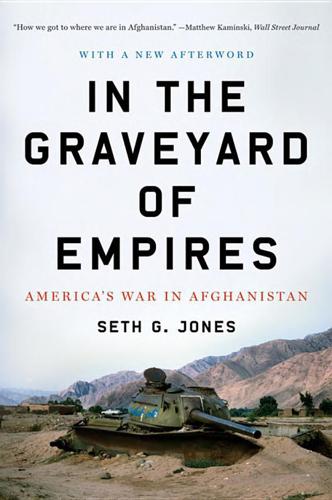
In the Graveyard of Empires: America's War in Afghanistan
by
Seth G. Jones
Published 12 Apr 2009
The Pashtun tribes that controlled this region had resisted colonial rule with a determination virtually unparalleled in the subcontinent. The tribes were granted maximum autonomy and allowed to run their affairs in accordance with their Islamic faith, customs, and traditions. Tribal elders, known as maliks, were given special favors by the British in return for maintaining peace, keeping open important roads such as the Khyber Pass, and apprehending criminals. After partition in 1947, Pakistan continued this system of local autonomy and special favors. FIGURE 6.2 Pakistan’s Tribal Agencies Courtesy of RAND Corporation Pakistan’s founder, Muhammad Ali Jinnah, laid the foundation for this independence in remarks to a tribal jirga in Peshawar in 1948: “Keeping in view your loyalty, help, assurance and declarations we ordered, as you know, the withdrawal of troops from Waziristan as a concrete and definite gesture on our part….
…
The landscape is strangely reminiscent of Frederic Remington or C. M. Russell’s paintings of the American West. Gritty layers of dust sap the life from a parched landscape. Shkin lies just south of the setting for Rudyard Kipling’s “Ballad of the King’s Jest,” which notes: When spring-time flushes the desert grass, Our kafilas wind through the Khyber Pass. Lean are the camels but fat the frails, Light are the purses but heavy the bales, As the snowbound trade of the North comes down To the market-square of Peshawur town.1 There was an Afghan National Army observation post in Shkin. Four miles away was a U.S. firebase, which that night housed fewer than a dozen Americans, including two U.S.
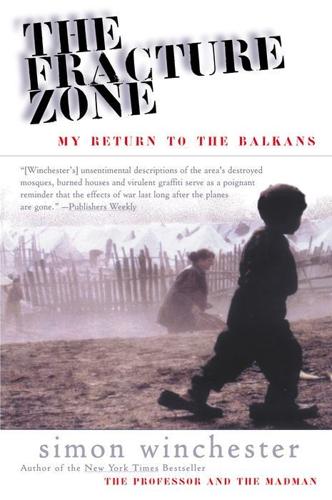
The Fracture Zone: My Return to the Balkans
by
Simon Winchester
Published 16 Oct 2000
I replied, with what was probably some asperity, to the effect that I was in no mood for tourism, that I was in a hurry, and that I wanted to catch the ferry and make Mons that night—for the simple reason that I planned to make India well before the middle of September. I knew that the roads in the Punjab would be tricky with postmonsoon mud; I planned to be at the Khyber Pass in three weeks’ time. Albert grunted. This was not, he muttered, going to be the pleasure trip he had imagined. It was much the same the next day in Germany, as we sped past the twin spires of Cologne Cathedral, and then again as a succession of ever prettier Bavarian villages vanished in the rearview mirror.
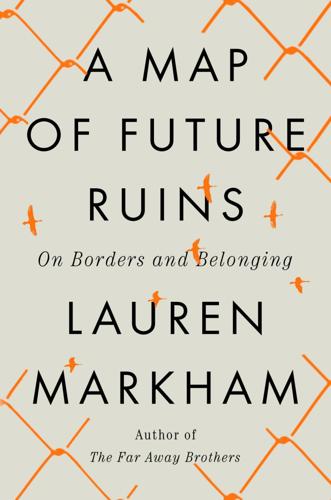
A Map of Future Ruins: On Borders and Belonging
by
Lauren Markham
Published 13 Feb 2024
When the powers finally agreed to a truce, they formed a joint commission to determine the country’s northern borders. Later, the eastern border was drawn by Sir Henry Mortimer Durand, Britain’s designee, and Afghan leader Abdur Rahman Khan. The British were adamant about securing strategic access to the Khyber Pass; Khan did what he could to negotiate his own interests and those of Afghanistan. The resulting border—christened “the Durand Line,” making it clear that the imperial outsiders largely controlled the map—split Pashtun communities in two, causing much strife for the separated communities and ongoing territory disputes between Afghanistan and what would become Pakistan.
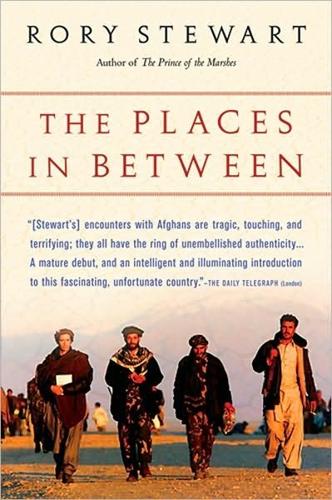
The Places in Between
by
Rory Stewart
Published 1 Jan 2004
After a lifetime of bread, Babur was now eating meat three times a day. He spent most of his time asleep in the garden, shaded by the vines or the mulberry trees. For an almost wild dog, he seemed to adjust quickly to domestic life. Babur and I left by car two days later, following the Kabul River through the Khyber Pass to Pakistan. The car was small, and Babur and I shared the front passenger seat, his hindquarters between my legs, his paws on my shoulder, and his dribble on my sweater. He was terrified of cars, having never seen them in his village, and he dribbled a great deal. In Pakistan, I arranged Babur's vaccinations, his vet's certificates, his enormous kennel, and his seat on the plane to Britain.
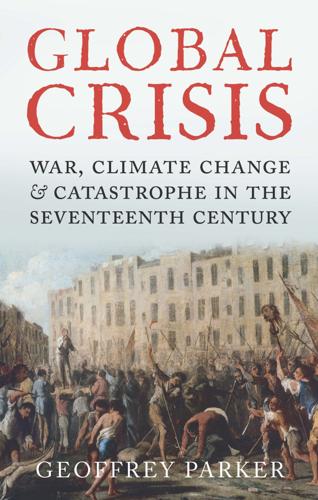
Global Crisis: War, Climate Change and Catastrophe in the Seventeenth Century
by
Geoffrey Parker
Published 29 Apr 2013
According to his historians, ‘the mighty soul of the world-subduing monarch had been bent upon’ conquering the lands ‘which were properly his hereditary domains’ ever since ‘the time of the last emperor Jahangir's death’ in 1627. Twelve years later, Mughal troops seized Qandahar in southern Afghanistan from its Safavid defenders, and the emperor and a massive entourage crossed the Khyber Pass for the first time. They spent the summer at Kabul while they prepared to conquer the lands beyond, ‘which were once included in the kingdom of his imperial ancestors’, but the Uzbeks, who had occupied the Mughal ‘homeland’ ever since expelling Shah Jahan's ancestors more than a century before, mounted such an effective defence that the emperor's ‘mighty soul’ decided to return to India.19 Then a succession dispute arose between two Uzbek rulers, one of whom appealed for Mughal assistance.
…
When news of this success reached the emperor, still at Kabul, he hosted a party that lasted eight days and wrote a boastful letter to the shah of Iran predicting that his troops would soon also take Timur's former capital, Samarkand. Admittedly, Shah Jahan had much to boast about. His armies had overcome remarkable logistical obstacles in crossing the Khyber Pass (3,000 feet above sea level) to Kabul, more than 800 miles from the Mughal capital, and in advancing a further 200 miles over the Salang Pass (almost 12,000 feet above sea level) to Balkh. His expeditionary force was probably the largest ever to enter the region before the Soviet invasion of 1979.
…
Many of them did eventually see Samarkand, but as slaves: prisoners from the Mughal army were so numerous that the price of Indians in the slave markets of Central Asia fell by two-thirds. It took Aurangzeb and the survivors a month to regain Kabul, arriving just in time to accompany the emperor back across the Khyber Pass.21 The Mughals’ spectacular failure encouraged Shah Abbas II of Iran to demand the return of Qandahar and, when no satisfactory answer came, in 1649 his forces recaptured the city. Shah Jahan promptly returned to Kabul, but even his official chronicler noted that at the siege of Qandahar the Mughals had brought ‘with them neither a siege train of battering guns, nor skilled artillerymen’.
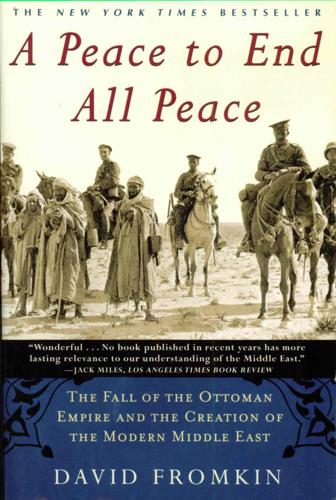
A Peace to End All Peace: The Fall of the Ottoman Empire and the Creation of the Modern Middle East
by
David Fromkin
Published 2 Jan 1989
Amanullah secretly planned an attack on British India—through the Khyber Pass—that was to coincide with an Indian nationalist uprising in Peshawar, the principal British garrison town near the frontier.2 Amanullah believed that a nationwide Indian uprising would then occur. Amanullah's army commander moved too soon, however, before the Peshawar uprising could be organized, and unwittingly alerted the British to their danger. On 3 May 1919 a detachment of Afghan troops crossed the frontier into British India at the top of the Khyber Pass. They seized control of a border village and a pumping station controlling the water supply to a nearby Indian military post.
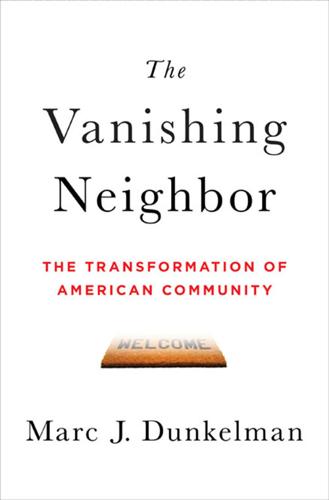
The Vanishing Neighbor: The Transformation of American Community
by
Marc J. Dunkelman
Published 3 Aug 2014
In the early 1970s, my father did something crazy by today’s standards: he hitchhiked around the world. He was in his mid-twenties, the economy was sluggish at home, and so he set off on a freighter across the Atlantic, became a chicken farmer on an Israeli kibbutz, and eventually made his way across the Khyber Pass into Pakistan. For years, my sister and I were plied with stories from that journey, and with the tidbits of wisdom Dad had gathered at each stop along the way. The legacy of that trip spurred the inevitable: like every kid who looks up to his father, I announced one night to my parents at some point in middle school that when I came of age, I too would hitchhike around the globe.
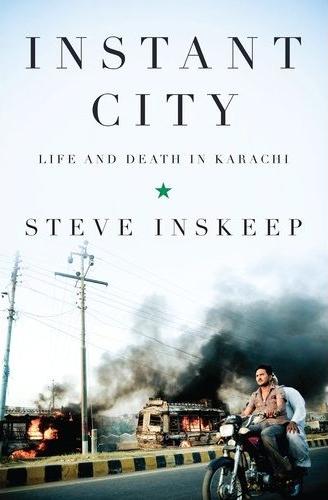
Instant City: Life and Death in Karachi
by
Steve Inskeep
Published 12 Oct 2011
His father and brothers had moved to Karachi long ago to find work and a better life. Then Nader came to Karachi to attend a wedding, and met a girl so attractive that he proposed to her. “Love marriage,” he told me in English, meaning it was not an arranged marriage. He’d come to the city on a train called the Khyber Mail, which rolled down from the mountains near the Khyber Pass from Afghanistan. Nader would hear that train arrive in Karachi many times in the years ahead, because he lived with his bride in an unauthorized settlement by the railroad tracks. Nader applied for a job with the Edhi Foundation, which hired him as an ambulance driver. We first met at the Edhi dispatch office on Jinnah Road; we sat inside, seeking shade on a blistering day.

This Sceptred Isle
by
Christopher Lee
Published 19 Jan 2012
The three Afghan Wars (1838–42, 1878–81, 1919–1921) were examples of hopeless expectation and even imperial arrogance that were inevitable in a period when, through commitment and necessity, the British believed their superior form of warfare more than capable of imposing their authority. In this assumption, the British were wrong. For example, in the first war, only one soldier of some 16,000 troops and followers who had retreated from the capital Kabul managed to get across the Khyber Pass and home into India. The lessons of those wars was hardly heeded in 2001. Just as an interest in the poppy crop played a part in the twenty-first-century Afghan war, so it did in Victoria’s early reign. A district commissioner observed that if the locals could be encouraged to grow poppies they could raise revenue and so pay taxes desperately needed by the British.
…
Major General William Elphinstone was the commander who surrendered the garrison. He died almost immediately. Some 16,500 people, made up of Indian troops, British troops, wives and children, filed out of the Kabul garrison, surely with little faith in Akbar Khan’s promise of safe conduct to India. The Afghans massacred most of them on the Khyber Pass road on 13 January 1842. A very few were taken prisoner and thrown into prison at Kabul. All that was left of the British presence in Afghanistan was the garrison at Kandahar and that at Jalalabad, both under siege. General Sir George Pollock (1786–1872) was the man designated to rescue the three pockets of British survivors and their followers at Jalalabad, Kandahar and Kabul.

Atrocity Archives
by
Stross, Charles
Published 13 Jan 2004
"Once we've inserted the initiator, dialled a yield, armed the detonators, punched in the permissive action codes, set the timer, then removed the control wires, nothing's going to stop it. Can't even open it up: someone messes with the tamper piece, it calls 'tilt' and the game's over. Y'see, we might be a Soviet Guards Motor Rifle formation that's just captured the bridge it's strapped to. Or a bunch of uglies from the backwoods behind the Khyber Pass. So, as you can understand, even conceding that letting it blow here and now might be a very bad idea, it's going to go. Unless you fancy trying your hand at dissecting a booby-trapped, ticking H-bomb, and I don't recall seeing UXB training on your résumé." He glances at his watch. "Only another fifty-seven minutes to go, lad.

The Forever War
by
Dexter Filkins
Published 15 Sep 2008
Talking to Wali that day, and Mohammedi and the other Talibs, it seemed obvious enough that what lay at the foundation of the Taliban’s rule was fear, but not fear of the Taliban themselves, at least not in the beginning. No: it was fear of the past. Fear that the past would return, that it would come back in all its disaggregated fury. That the past would become the future. The beards, the burqas, the whips, the stones; anything, anything you want. Anything but the past. AT THE KHYBER PASS, I flagged down a crumpled white Lada from another age. A driver named Javed, wearing a hajj cap but no turban, took off, driving into the craters, mountains staring down. At the checkpoint, the Talibs poked and pawed and waved us through. Soon Javed tossed his hajj cap onto the dash, reached under the seat and found a cassette.
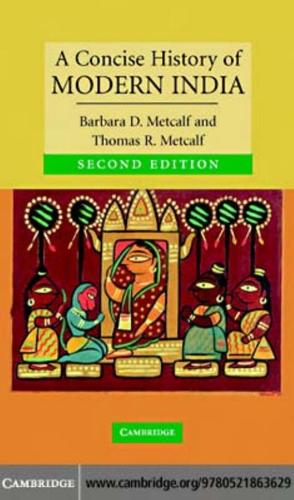
A Concise History of Modern India (Cambridge Concise Histories)
by
Barbara D. Metcalf
and
Thomas R. Metcalf
Published 27 Sep 2006
And he was convinced of the importance of new networks for communications and transportation in India as well. Dalhousie’s arrival coincided with the Second Sikh War in 1848–9, which brought about the annexation of the rich, strategically critical, province of Punjab, and so extended the Raj up to the Khyber Pass. Dalhousie also reluctantly, but effectively, prosecuted a military campaign in Burma in 1852, responding primarily to commercial interests, and annexed lower Burma (as a prelude to Dufferin’s final annexation of the whole country in 1886). Under Dalhousie’s direction, the administration of the Punjab was entrusted to a coterie of like-minded officers under the strong direction of two brothers, John and Henry Lawrence.
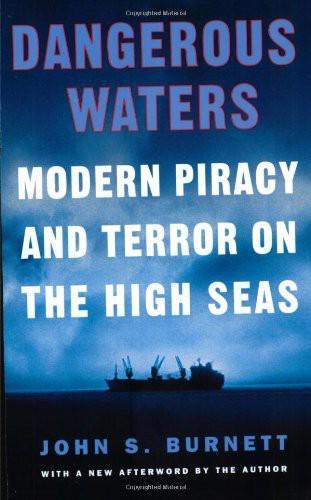
Dangerous Waters: Modern Piracy and Terror on the High Seas
by
John S. Burnett
Published 1 Jan 2002
The pilot enters the lighted chartroom behind the bridge; he is a big man, a Singapore Indian, clad in a white safari jacket, white slacks, white shoes, and white gloves, carrying a black computer bag. He has a great white Tartar mustache and goatee, and curly silver hair rests upon his shoulders. He looks like he should be sweeping down the Khyber Pass on horseback, swinging a saber. On the darkened bridge he begins directing the flight across the busy shipping lane. “All stop!” His hand flies up with the conviction of a baseball umpire calling a runner out at the plate; we are slowing down to let the container ship pass. “Port ten,” he says, throwing his hand out to the left.

The Marches: A Borderland Journey Between England and Scotland
by
Rory Stewart
Published 14 Jul 2016
A hundred metres into Iran, the border guard asked me what I wanted to drink. ‘Coffee,’ I said, and he laughed. ‘We only drink tea,’ he said and gave me a cup of black tea. And it was only tea for the next 800 miles. Again, precisely at the Iranian–Afghan border – a zone of a single Farsi ‘Khorasani’ culture – they began to drink green tea. At the Khyber Pass – a line which Afghanistan does not even recognise, an absurd line, scratched by Sir Mortimer Durand to mark the edge of British India, running straight through the middle of a single Pushtu tribal group, who continued to trade and intermarry; they put milk and sugar in their tea. I assumed that the Arizonan border would make my fellow passengers feel how strongly artificial borders could define national cultures, in defiance of any ‘natural facts’ of geography or historical ethnicity.
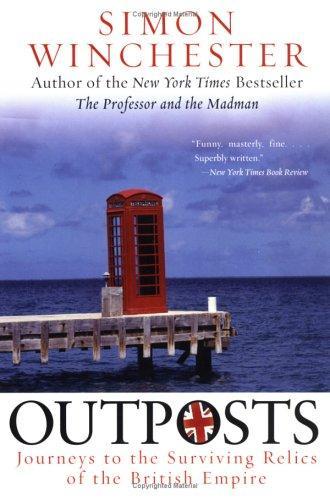
Outposts: Journeys to the Surviving Relics of the British Empire
by
Simon Winchester
Published 31 Dec 1985
It is a frantically busy place, with factories and tower blocks and hotels (most of them paid for by wealthy Hong Kong investors) rising out of the paddy fields, and restaurants jammed solid with a new Chinese élite who are making money on a scale of which Mao would never have dreamed. And then, dark on a distant hill, the first sign of a familiar Empire: the square and battlemented outline of a fort. I had seen such things on the brown ridges above the Khyber Pass, and in the Malakand Hills near Swat. Both there, and here, they looked as if they belonged on a film set for Beau Geste: they are called Mackenzie Forts, after the Bengal Governor who designed them. Elsewhere in the world they are mere relics of a British Raj; they belong now to independent governments, who use them for training, or turn them into museums, or just allow them to fall into ruin.
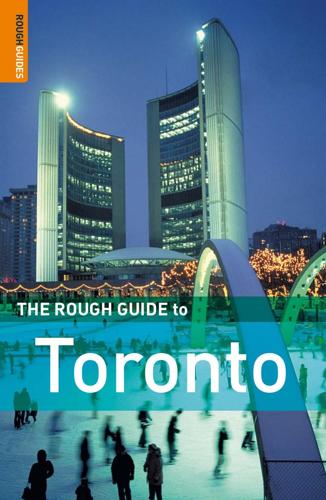
The Rough Guide to Toronto
by
Helen Lovekin
and
Phil Lee
Published 29 Apr 2006
These stained-glass windows were inserted at the end of the nineteenth century, but those of St George’s Chapel, in the southeast corner of the church, were added in 1935 to celebrate the Silver Jubilee of King George V. They exhibit an enthusiastic loyalty to the British Empire that is echoed in many of the cathedral’s funerary plaques: take, for example, that of a certain Captain John Henry Gamble, who was born in Toronto in 1844 but died on active service in the Khyber Pass in 1879; his stone is in the west transept. Spare a | The St Lawrence District 60 St James Cathedral thought also for poor old William Butcher, a native of Suffolk, in England, who fell to his death from the scaffolding erected during the construction of the cathedral spire when he was just 27; his stone is in the main entrance way.
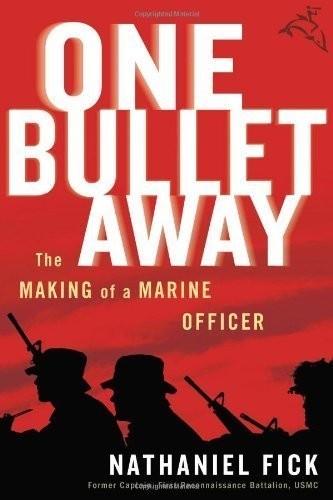
One Bullet Away: The Making of a Marine Officer by Fick, Nathaniel C.(October 3, 2005) Hardcover
by
Nathaniel C. Fick
Published 14 Apr 2006
“Yeah, and the ragtag Chechens just kicked that same army in the teeth because the Russians’ tactics and training and leadership suck. I don’t think the comparison with us stands up.” “Maybe not. I’m just saying we need to remember the history.” Patrick ran through a sketch of the foreign powers that had come to grief in Afghanistan’s mountains. “In 327 B.C., Alexander the Great comes through the Khyber Pass and gets hit by an Afghan archer’s arrow. He nearly dies. Almost a thousand years later, Genghis Khan imposes his will over this whole part of the world. Who are the only people to pry concessions from him? The Afghans. And then there’re the British. I wouldn’t be surprised if Tony Blair wants no part of this operation.
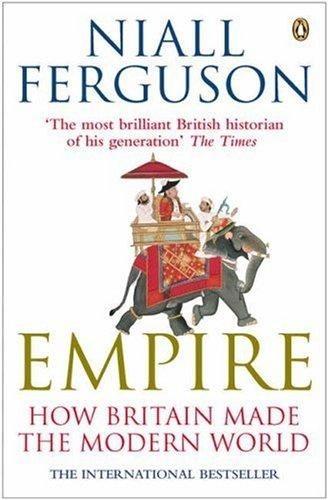
Empire: How Britain Made the Modern World
by
Niall Ferguson
Published 1 Jan 2002
But the spies in this Cold War were surveyors, for whoever mapped the frontier first stood a good chance of controlling it. The Great Survey of India thus became inextricably bound up with espionage: what one of the early British frontiersmen called the ‘Great Game’. At times it really did seem like a game. British agents ventured into the uncharted territory beyond Kashmir and the Khyber Pass disguised as Buddhist monks, measuring the distances between places with the aid of worry-beads – one bead for every hundred paces – and concealing the maps they surreptitiously drew in their prayer wheels.* But this was a deadly game played in a no man’s land where the only rule was the merciless Pakhtun or ‘Pathan’ code of honour: hospitality to the stranger, but a cut throat and an interminable vendetta against all his kin if he transgressed.
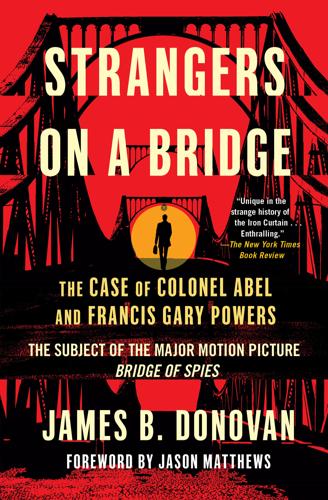
Strangers on a Bridge: The Case of Colonel Abel and Francis Gary Powers
by
James Donovan
Powers had flown twenty-seven missions totaling five hundred air hours in the U-2, but the “silent overflight” across the Soviet Union was the most rigorous of all his assignments. Powers later admitted to being “scared and nervous.” A lonely and grueling flight, it began at Peshawar, a border town not far from the Khyber Pass, and was planned to end 3,788 miles later at Bodo, Norway. Almost 3,000 miles along the route was over Soviet territory. The flight was always made at upwards of 70,000 feet where the pilot would breathe only pure oxygen and every movement demanded great exertion. The flight took eight hours to complete.

Predator: The Secret Origins of the Drone Revolution
by
Richard Whittle
Published 15 Sep 2014
Eight days later, they were in Kabul, Afghanistan: “4 Yale Men Greeted by Afghans with Free Tea and Free Shave,” the headline said. “The Afghans are not far from Stone Age culture in some places,” the Yale men reported. “Their standard of living is the lowest the expedition has seen. But they have a pride and independence that command respect.” Three weeks later, Times readers learned that “Driving through the Khyber Pass into Pakistan was like moving into a new world, or at least a different age.” Once out of the pass, which cut through Pakistan’s ungoverned North West Frontier Province, the Yale men saw that “an amazing number of areas were set aside for specialized military training.” Even in Peshawar, a relatively modern city, “the tribesmen stroll through the streets carrying rifles,” they reported.
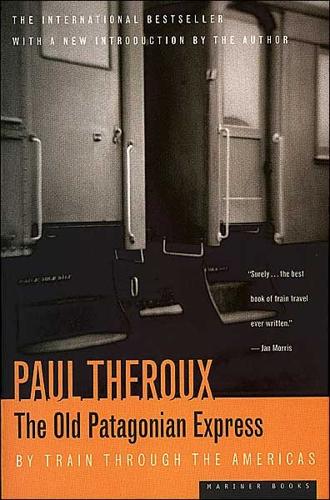
The Old Patagonian Express
by
Paul Theroux
Published 23 Sep 1979
It gladdened me to know that these people recognized that the train was a piece of junk. I had thought, from their silence, that they had not noticed. There were more bridges, more gorges filled with cloud and fog, but none was so frightening as that first one. And yet this part of the trip reminded me of the route through the Khyber Pass taken by the battered train to Peshawar. It was more than the view from a similarly beat-up car of rocky mountainsides; it was the sight of a dozen sections of track - ahead, across the valley, and one beneath that, and one over there, and another lying parallel, and more above and below all the way to the valley floor.
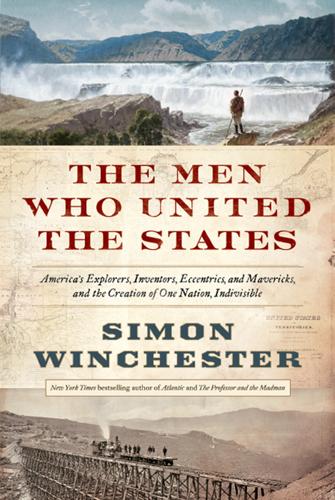
The Men Who United the States: America's Explorers, Inventors, Eccentrics and Mavericks, and the Creation of One Nation, Indivisible
by
Simon Winchester
Published 14 Oct 2013
An idea came to me one morning when I was writing a letter to a friend in China. Beginning in the mid-1970s, I had lived for many years on the far side of the world and had spent much time tramping the territories between Vladivostok and Vietnam, between Manchuria and Malaysia, and between Kashmir and the Khyber Pass. All the countries of Asia—as well as the ancient civilizations of the Mediterranean—had held for centuries a philosophical view that everything and everyone can be reduced to the barest essentials, the five so-called classical elements. While the ancient Greeks revered just four elements, most other civilizations, from India eastward, nominated five.
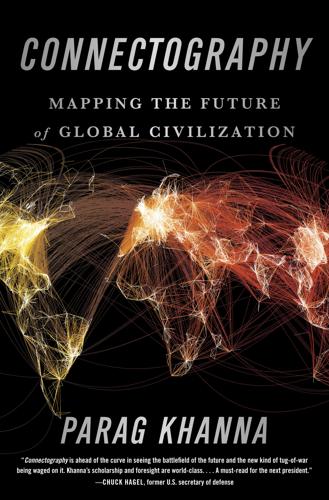
Connectography: Mapping the Future of Global Civilization
by
Parag Khanna
Published 18 Apr 2016
THE NEW GRAND TRUNK ROAD TO PAX INDICA The Grand Trunk Road is no longer the world’s most majestic road trip. The portion from Kabul to Jalalabad, while now a paved section of Afghanistan’s new highway system, has endured more than a decade of suicide bombers attacking NATO convoys. Heading east from Jalalabad through the spectacular Khyber Pass, one enters Pakistan’s restive tribal areas, where the government is struggling to build roads, power lines, and irrigation canals in a landscape beset by feudal rulers and Taliban insurgents. Another day of driving past the capital, Islamabad, and four hundred kilometers south to the cultural hub of Lahore brings you to the heavily armed Indian border at Wagah, famous for its goose-stepping daily flag-lowering ceremony.

The Oil and the Glory: The Pursuit of Empire and Fortune on the Caspian Sea
by
Steve Levine
Published 23 Oct 2007
As for Heslin, he wrote, she was “Amoco’s ambassador to the NSC,” whose “sole job, it seemed, was to carry water for an exclusive club known as the Foreign Oil Companies Group, a cover for a cartel of major petroleum companies doing business in the Caspian.” The last urgent days of the Early Oil saga played out in Azerbaijan. They began quietly enough, with the arrival in Baku of Zbigniew Brzezinski, who, as President Carter’s national security advisor, had famously ridden up Pakistan’s Khyber Pass and aimed a rifle at imagined Soviet troops. Brzezinski had since established his credentials as a balanced and serious thinker on Russia’s role in its Near Abroad, and President Aliyev saw in him a kindred spirit. Now Brzezinski was on Amoco’s payroll, representing its humanitarian efforts in Azerbaijan and Armenia.
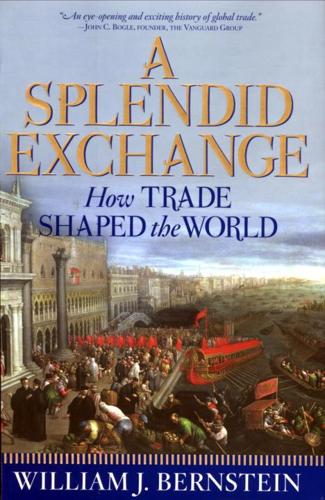
A Splendid Exchange: How Trade Shaped the World
by
William J. Bernstein
Published 5 May 2009
The other way to Rome, the famous Silk Road, first opened up by Han emissaries in the second century of the Christian era, bumped slowly overland through central Asia. This route was far more complex, and its precise track varied widely with shifting political and military conditions, from well south of the Khyber Pass to as far north as the southern border of Siberia. Just as the sea route was dominated by Greek, Ethiopian, and Indian traders, so would be the overland "ports," the great cities of Samarkand (in present-day Uzbekistan), Isfahan (in Iran), and Herat (in Afghanistan), richly served by Jewish, Armenian, and Syrian middlemen.
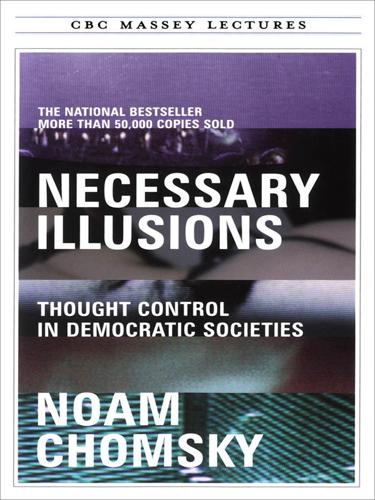
Necessary Illusions
by
Noam Chomsky
Published 1 Sep 1995
Zbigniew Brzezinski writes that “it is scandalous that so much of the conventionally liberal community, always so ready to embrace victims of American or Israeli or any other unfashionable ’imperialism,’ is so reticent on the subject” of Afghanistan. Surely one might expect liberals in Congress or the press to desist from their ceaseless labors on behalf of the PLO and the guerrillas in El Salvador long enough to notice some Soviet crimes; perhaps they might even follow Brzezinski to the Khyber Pass to strike heroic poses there before a camera crew. Political scientist Robert Tucker writes that “numerous public figures in the West, even a number of Western governments [… have] encouraged the PLO in its maximalist course” of “winner-take-all,” that is, destruction of Israel; he too fails to cite names and references, for unsurprising reasons.
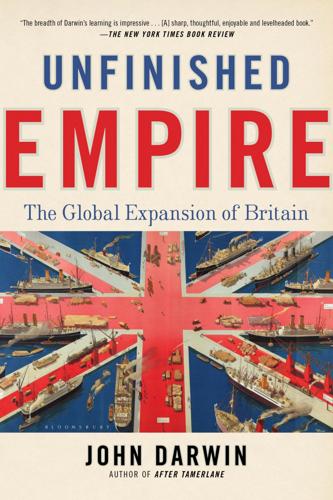
Unfinished Empire: The Global Expansion of Britain
by
John Darwin
Published 12 Feb 2013
Before the British could reach them from their side of the station, they killed forty-one whites – officers, civilians, women and children – and set off for Delhi. Within a matter of days – this is what astounded the British – their example was followed all over North India. From as far away as Peshawar (by the Khyber Pass), Indore to the south and Dinahpur in the east, reports began to pour in of murder and mutiny. The critical fact here was the sheer scale of the mutiny. The sepoys revolted at more than forty military stations. Altogether, perhaps, some 70,000 mutinied and a further 30,000 deserted.45 Several causes were at work to widen upheaval.
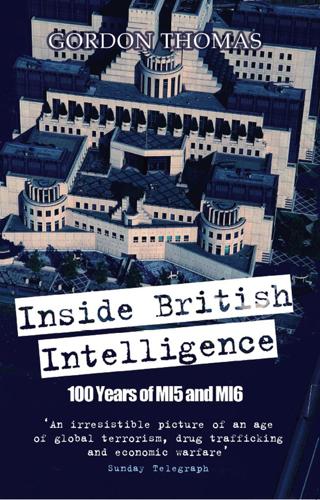
Inside British Intelligence
by
Gordon Thomas
In her striped Indian silk blouse and fashionable miniskirt, which showed off her tanned legs, with her long hair coiled into a bun beneath her pillbox hat, she looked ten years younger than her thirty-four. She was about to start on a new journey, very different from the one she had recently completed to the top of the Khyber Pass, looking toward the towering peaks of the Himalayas. Then, she had been filled with a sudden feeling of uncertainty, because she was leaving India. Would she be successful in holding down a permanent job with MI5 in London—not as a secretary but as a spy catcher? Her enemy, as in India, would be Soviet spies, only instead of typing up reports of their activities for her MI5 boss in Delhi, she would be on the first rung of tracking them down herself.
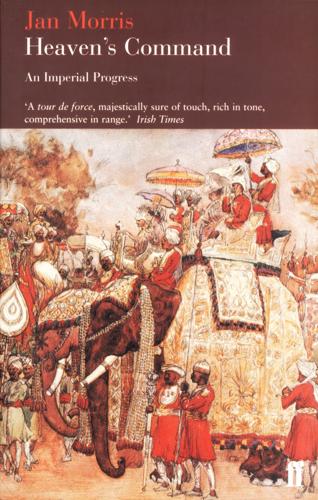
Heaven's Command (Pax Britannica)
by
Jan Morris
Published 22 Dec 2010
Jones, Owen, 1 Jugdulluk Pass, Afghanistan, 1 Jung Bahadur, Sir, 1 Kabul, Afghanistan, 1, 2, 3, 4n., 5, 6, 7 Kali, 1, 2n., 3 Kampala, Uganda, 1, 2 Kandahar, Afghanistan, 1 Kano, 1 Kanpur, see Cawnpore Karachi, 1, 2 Karagwe, 1 Karikari, Kofi, 1, 2, 3 Kashmir, 1 Katmandu, 1 Kavanagh, Henry, 1 Kaye, Sir John William, 1, 2n., 3, 4, 5, 6 Kazeh, 1 and n., 2 Keane, General, 1, 2 Kelat, Afghanistan, 1 Kenmare, Ireland, 1 Kennedy, John, 1 Kenya, 1 Kerefe, Sierra Leone, 1n. Kew Gardens, London, 1, 2 Khartoum, 1, 2 Khyber Pass, 1, 2 Kiepert, Dr, 1 Kilkenny, Ireland, 1, 2 Kilmainham Treaty, 1, 2 King, Dick, 1 Kingsley, Charles, 1 Kingston, Jamaica, 1, 2 Kipling, Rudyard, 1 Kirkwall, Lord, 1 Kitchener, Lord, 1, 2 Knibb, Rev. William, 1and n., 2 Knock Fryrish, Easter Ross, 1 Knollys, Henry, 1 Knutsford, Lord, 1 Knysna Heads, 1 Koh-i-Nor, 1, 2, 3 Kohl, Johan Georg, 1 Kruger, Paul, 1, 2, 3, 4, 5, 6, 7, 8, 9 Kumasi, Ashanti, 1, 2, 3, 4 Kurnaul, India, 1 Kythera, 1 Lachine, Canada, 1, 2, 3, 4 Laing’s Nek, Transvaal, 1 Lalor, Fintan, 1 Landor, Walter Savage, 1 Landseer, Sir Edwin, 1 Lanney, ‘King Bill’, 1 Launceston, Tasmania, 1 Lawrence, George, 1, 2, 3 Lawrence, Sir Henry, 1, 2, 3, 4, 5, 6, 7, 8 Lawrence, John, 1, 2, 3, 4, 5, 6, 7, 8, 9 Lear, Edward, 1, 2, 3 Lesseps, Ferdinand de, 1, 2, 3 Levkas, 1, 2 Levuka, Fiji, 1 Liberia, 1 Libreville, 1 Lightfoot, Hannah, 1n.

The Secret World: A History of Intelligence
by
Christopher Andrew
Published 27 Jun 2018
Russia, he believed, had superb intelligence from the court of Sher Ali: while ‘the Government of India is dependent on the merest guesswork for what is happening in the mind of Sher Ali, the Russian Cabinet know every rupee that we give him and almost every word that we write or talk about him’.61 When Sher Ali received a Russian mission at Kabul while turning back a mission sent by Lytton at the Khyber Pass in September 1878, Great Britain’s prestige as a great power, as well as the security of India, was thought to be at stake, and a show of force necessary to demonstrate to the Russians Great Britain’s will and ability to protect her sphere of influence, and to the Amir that he could have no allies but the Government of India.
…
.* The Second Afghan War ended in a British victory and the emergence of a new imperial hero, General (later Field Marshal Lord) ‘Bobs’ Roberts, who avenged the defeat at Marwand by reconquering Kabul. But it was a pyrrhic victory. There was no successor to Cavagnari. Britain had to accept as Amir Abdur Rahman, who they knew had spent eleven years in exile under Russian protection in Tashkent but about whom they otherwise had little intelligence. Though Abdur Rahman ceded the Khyber Pass to the Raj, he refused to accept a British resident at Kabul. Despite recurrent fears to the contrary, however, a mixture of bribes, threats and promises of support against its neighbours kept Afghanistan out of the orbit of Russia and within that of India. By far the most successful intelligence service inside Afghanistan was that of Abdur Rahman, whose hold on power was reinforced by what Sir Rodric Braithwaite calls ‘a ruthless and omnipresent secret police’.68 ‘The Iron Amir’, as he became unaffectionately known, crushed two major rebellions and killed approximately 100,000 of his own subjects.69 By the 1880s the practice of diplomacy had been profoundly changed by increasing use of the telegraph.
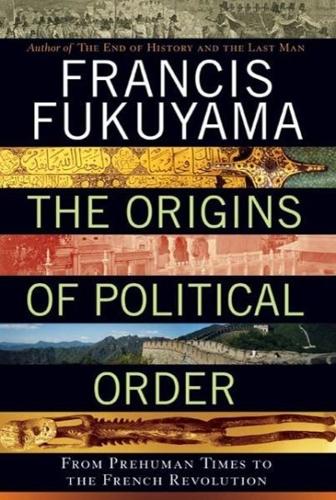
The Origins of Political Order: From Prehuman Times to the French Revolution
by
Francis Fukuyama
Published 11 Apr 2011
Ultimately, it was the state that decisively shaped Chinese civilization. In India, the new social categories of varna and jati formed the bedrock organization of society and severely limited the power of the state to penetrate and control it. Indian civilization, defined by varna and jati, spread all the way from the Khyber Pass to Southeast Asia and unified a diverse range of linguistic and ethnic groups. But this huge territory was never once ruled by a single political power and never developed a single literary language as China did. Indeed, the history of India before the late twentieth century is much more one of persistent political disunity and weakness, with some of the most successful unifiers being foreign invaders whose political power rested on a different social basis.
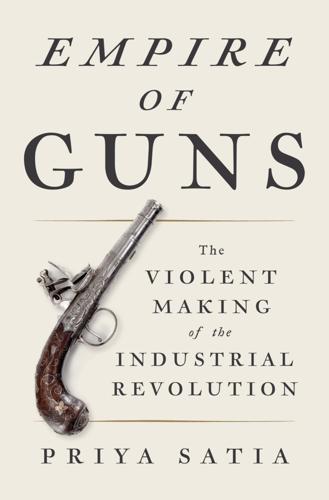
Empire of Guns
by
Priya Satia
Published 10 Apr 2018
In 1890, the Brussels Convention focused on rivalrous European arms flows to Africa, though stopping the slave trade was the explicit rationale. Imperial authorities also blamed the flood of weapons for the surge in crime, unrest—and, from 1905, political terror—in the Middle East and South Asia. They strained to control it. They had long paid the Afridi tribe to guard the Khyber Pass at the Indian frontier; the Afridi revolted in 1897. The British suppressed the revolt and then sought Muscat’s permission to search vessels in its waters, to prevent tribes on the North-West Frontier from obtaining guns. This led to massive seizures in the Persian Gulf in 1898, when a naval ship seized arms headed for Muscat, killing a thriving trade overnight.
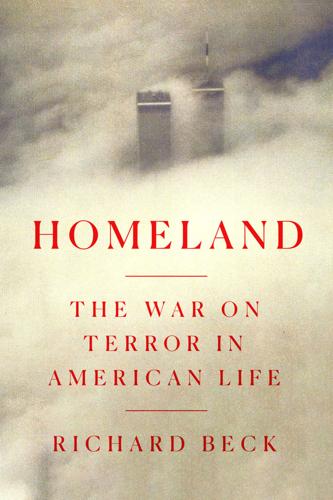
Homeland: The War on Terror in American Life
by
Richard Beck
Published 2 Sep 2024
A roughneck with a philosophical bent, Tillman never followed convention.[59] One finds every element of the mythical frontier hero in that paragraph: the homegrown philosophizing, the communion with nature and the universe, the quiet individualism, and the refusal to ask for permission to do what needs doing. The obituary describes the American Southwest but just as easily summons up the image of Tillman surveilling the Khyber Pass from a mountain overlook, scanning a different landscape for signs of danger with his gun at the ready. His death sanctified the tale that journalists and his former employers at the National Football League started building around him the day he enlisted. No longer able to fight himself, Tillman was now an example to future soldiers who would retrace his path to the battlefield.
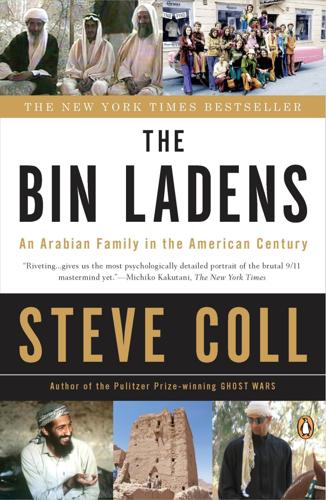
The Bin Ladens: An Arabian Family in the American Century
by
Steve Coll
Published 29 Mar 2009
A family attorney said that Ghalib recalled that “the cash which he [Ghalib] took with him from Peshawar was distributed to the poor in refugee camps” and was not provided to Osama; the attorney emphasized that Ghalib had never provided financial or other support for Osama’s terrorism.19 At the time of this visit, Osama was suffering through the most trying episode of his Afghan adventure. In March, at the direction of Pakistani intelligence, a large force of Afghan rebels had opened an assault on the eastern Afghan city of Jalalabad, about a four-hour drive away from Peshawar, over the Khyber Pass. The city was defended by a rump force of Afghan communist soldiers who feared they would be executed if they yielded their positions, and, therefore, fought fiercely, supported by clandestine Soviet officers who manned Scud missile batteries. Osama joined the siege campaign, leading a company-sized force of Arab volunteers who had been trained over the winter at the inaugural Al Qaeda camps.

Merchants of Truth: The Business of News and the Fight for Facts
by
Jill Abramson
Published 5 Feb 2019
Music was Alvi’s lane at Vice; he launched its YouTube channel, Noisey, which had an array of corporate sponsors, including Budweiser. He looked like a young grad student or Silicon Valley geek, with glasses and a beard. He was as wiry and calm as Smith was bulky and explosive. For one of the travel guides, he returned to his parents’ native country, Pakistan, to visit a gun market near the Khyber Pass, where his mother had taken him as a child. Dressed like a native and wearing sunglasses, he walked to where bullets were being made from the molten metal of rotting Soviet tanks, the camera following him, zooming in close as he fired a Kalashnikov. Gunfire and danger were often hallmarks of the Vice documentaries.
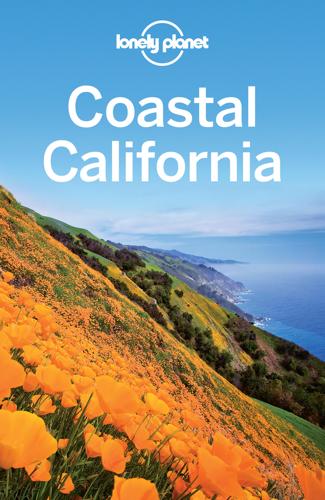
Coastal California
by
Lonely Planet
Kous Kous MOROCCAN $$ (www.kouskousrestaurant.com; 3940 4th Ave; mains $14-20; 5pm-late; ) Entering this otherworldly Moroccan eatery is like stepping onto another continent: the dining room is seductively illuminated by glowing lanterns, dinner guests sit on jewel-toned cushions drinking exotic cocktails, the aroma of ginger, nutmeg and foreign spices hangs in the air. Don’t miss the lamb sausage or the B’stila roll (saffron chicken baked with honey, cinnamon and almonds in phyllo dough). Khyber Pass MIDDLE EASTERN $$ (www.khyberpasssandiego.com; 523 University Ave; mains $14-30; 11:30am-10pm; ) Afghan tapestries and moody photos set the tone in this tall-ceilinged space, with adventuresome Afghan cooking. Never had it? Think Indian meets Middle Eastern, with yogurt curries, kababs and stews.
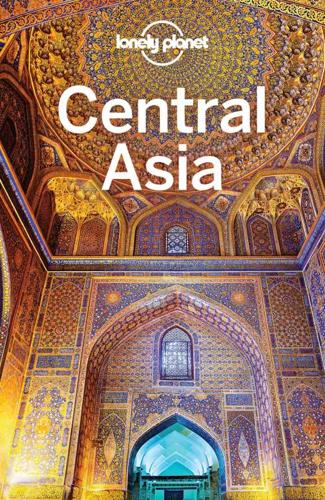
Lonely Planet Central Asia (Travel Guide)
by
Lonely Planet
,
Stephen Lioy
,
Anna Kaminski
,
Bradley Mayhew
and
Jenny Walker
Published 1 Jun 2018
He inherited his father’s kingdom before he was even a teenager and took Samarkand at the tender age of 14, but eventually lost both Samarkand and Fergana and was driven into Afghanistan by the Uzbek Shaybanids, effectively ending Timurid rule in Central Asia. Babur's life of exile took him across the Hindu Kush to Kabul and eventually across the Khyber Pass into India, where he founded the powerful Mughal Empire. He died aged 47, succeeded by his son Humayan, and was buried in his beloved gardens in Kabul. A cultured man who wrote in both Turkic and Persian, Babur's autobiography, the Baburnameh, is full of wistful longing for his lost lands of Central Asia and is a classic of medieval literature. 1Sights Jahon BazaarBAZAAR ( GOOGLE MAP ; h9am-6pm) Andijon’s Jahon Bazaar is the biggest bazaar on the Uzbek side of the Fergana Valley.
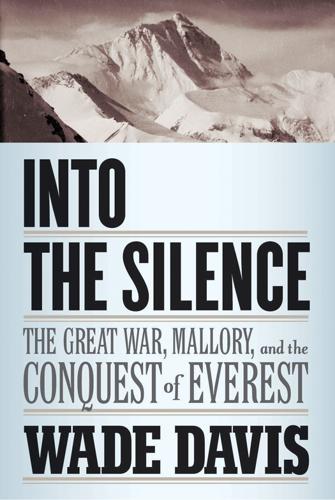
Into the Silence: The Great War, Mallory, and the Conquest of Everest
by
Wade Davis
Published 27 Sep 2011
Given to horseplay and crude practical jokes, a brilliant mimic with a voice like a bass drum and a great hissing laugh, he was a figure cut to inspire Kipling: a British officer fiercely loyal to his regiment, paternally protective of his men, fluent in a dozen native tongues, with a limitless appetite for drink, sport, food, and anything Indian. Martin Conway described Bruce’s energy as that “of a steam engine plus a goods train.” As a young man he was so strong that he could, with his arm extended, lift a grown man seated in a chair off the ground to ear level. To keep fit he regularly ran up and down the flanks of the Khyber Pass, carrying his orderly on his back. As a middle-aged colonel he would wrestle six of his men at once. It was said by some that he had slept with the wife of every enlisted man in the force. To his friends he was known as “Bruiser” Bruce; the men of the regiment called him simply Bhalu, the bear, or Burra Sahib, the Big Sahib.
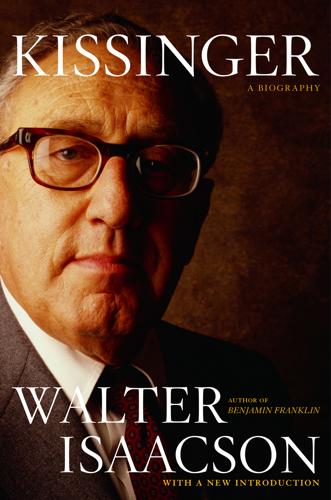
Kissinger: A Biography
by
Walter Isaacson
Published 26 Sep 2005
Thus he was able to stir controversy on a trip to Israel, India, and Pakistan that January, even though he was traveling only as a guest of the U.S. Information Agency rather than as a representative of the administration. In Israel, Kissinger opined that Soviet arms shipments to Egypt were provocative, which prompted such headlines as “Nasser Seen as Causing Crisis.” After visiting the Khyber Pass, he submitted to an impromptu press conference where he breezily (and incorrectly) noted that Pakistan “would never do anything so foolish” as join an alliance with China. The Pakistani ambassador to the U.S. officially protested. Finally, Bundy sent him a telegram saying, “If you don’t keep your mouth shut, I’m going to hit the recall button.”
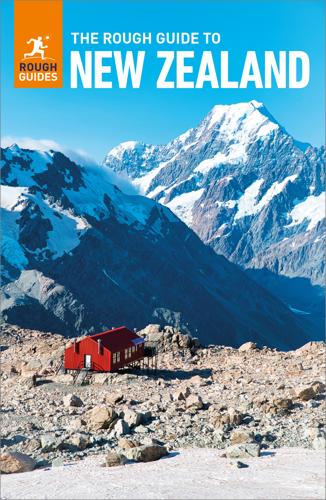
The Rough Guide to New Zealand: Travel Guide eBook
by
Rough Guides
Published 1 Jan 2024
Lovely spot in the heart of the Ponsonby action where you can sip on a few cocktails and munch on repeat orders of, you guessed it, gyoza. The Whiskey 210 Ponsonby Rd; www.thewhiskey.co.nz. Handsome bar decked out with chocolate leather sofas and white brick walls hung with superb photos of Little Richard, the New York Dolls, Jimi Hendrix and more. Great cocktails. Newmarket, See map page 94 The Lumsden 448 Khyber Pass Rd; www.thelumsden.co.nz. Craft beer bar with a laidback pub-on-the-village-square vibe. Tables spill onto the outside patio where live musicians play when the weather is fine. The menu is above-average pub grub such as pizza, burgers and shared platters. Entertainment, theatre and comedy Auckland’s theatre, classical music and comedy scene seldom sets the world alight, though it is reasonably lively, and you’ll usually have a choice of a couple of plays, comedy and dance or opera.

California
by
Sara Benson
Published 15 Oct 2010
Hash House a Go Go (Map; 619-298-4646; 3628 5th Ave; mains breakfast & lunch $8-15, dinner $14-36; breakfast & lunch daily, dinner Tue-Sun) What is hash exactly? At this long-popular gathering spot it’s a pile of breakfast potatoes tossed with meat or veggies and topped with two eggs. Sound decadent? Wait until you see the massive portions. Also vying for your attention are straight outta Carolina flapjacks, benedicts, and biscuits and gravy. Khyber Pass (Map; 619-294-7579; 523 University Ave; most mains $13-30; 11:30am-10pm; ) Afghan tapestries and moody photos set the tone in this tall-ceilinged space, with adventuresome Afghan cooking. Never had it? Think Indian meets Middle Eastern, with yogurt curries, kabobs and stews. For good Vietnamese, there’s elegant but not overbearing Saigon on Fifth (Map; 619-220-8828; 3900 5th Ave; mains $8-16; 11am-midnight).